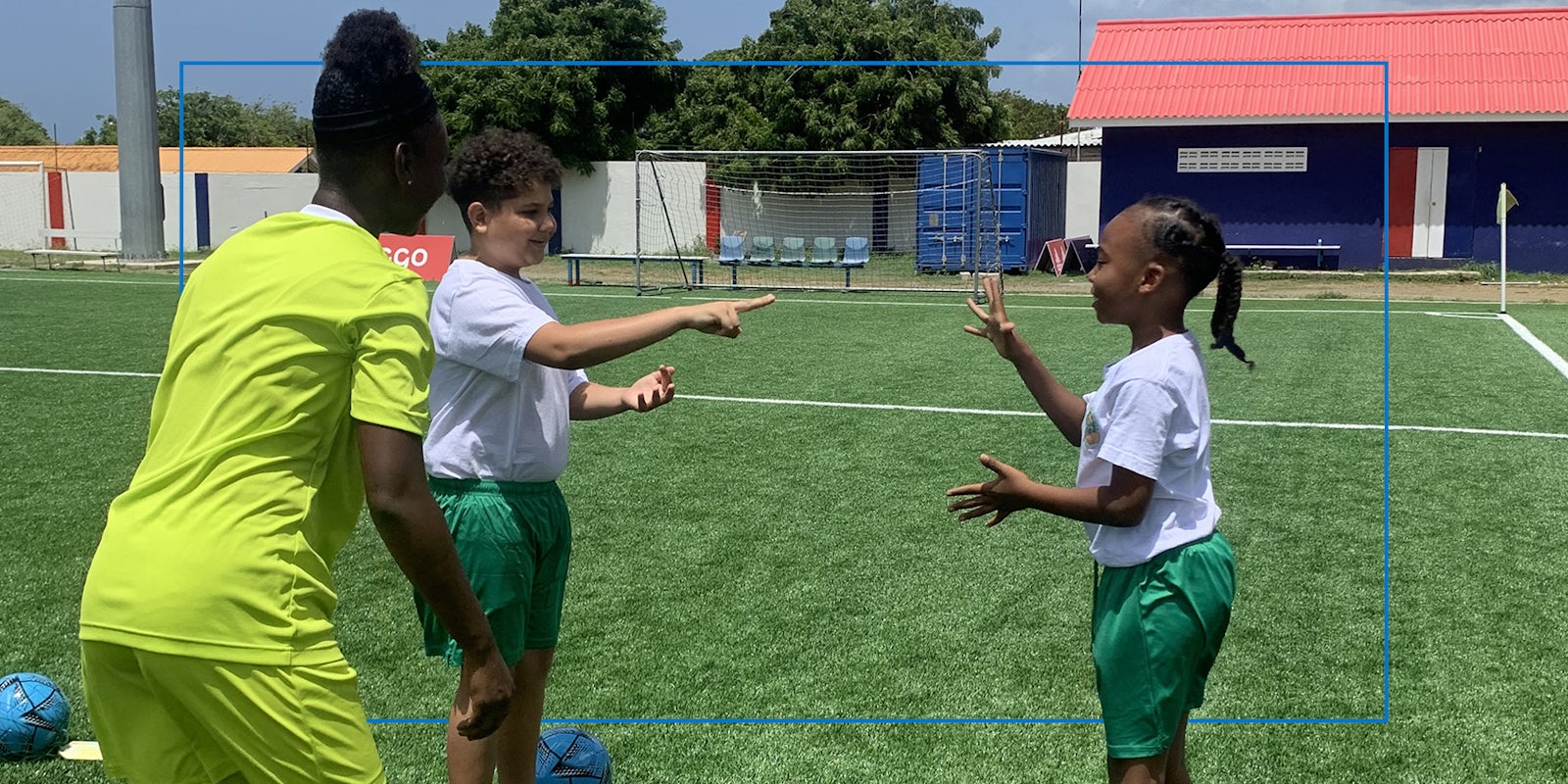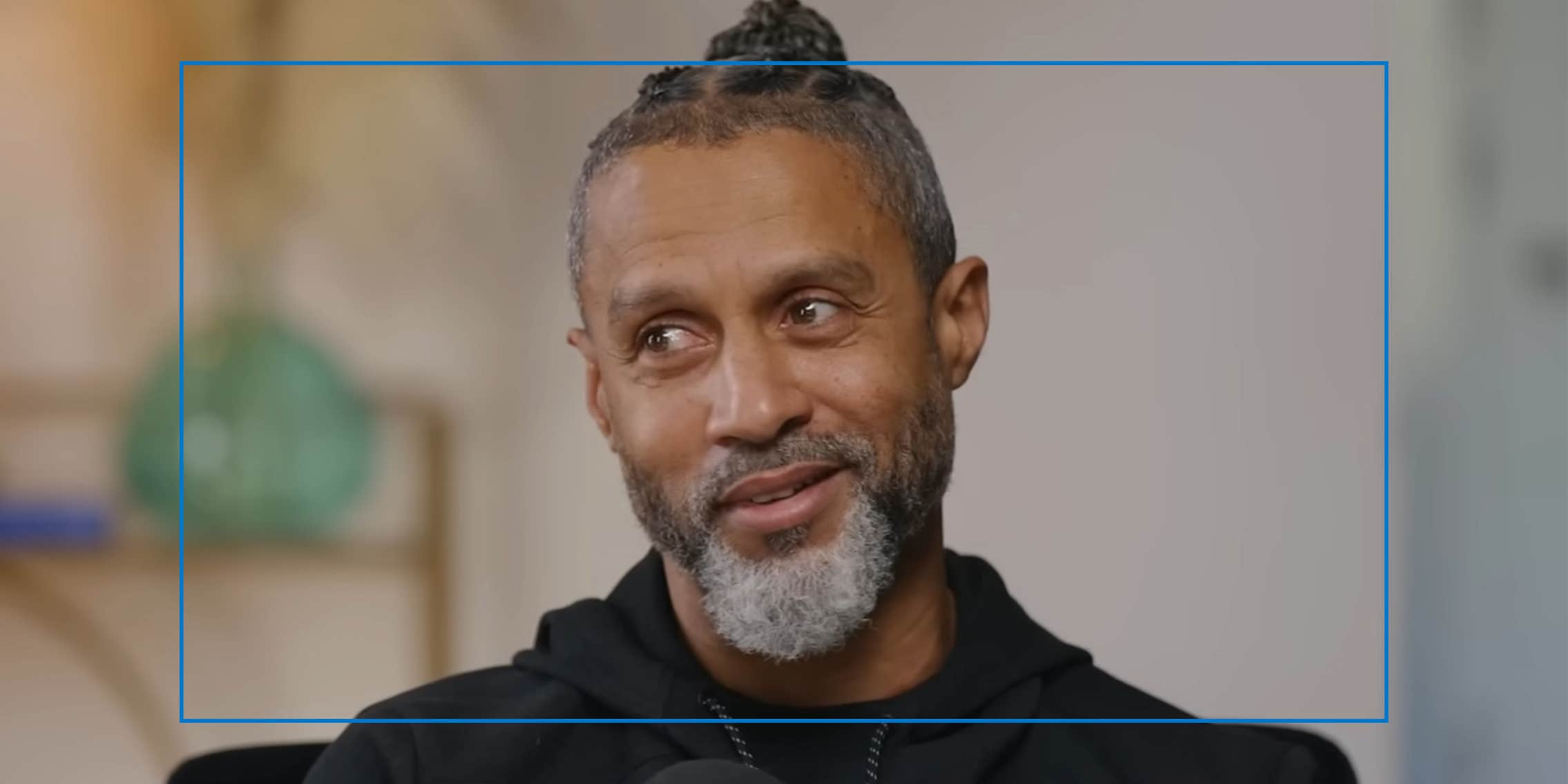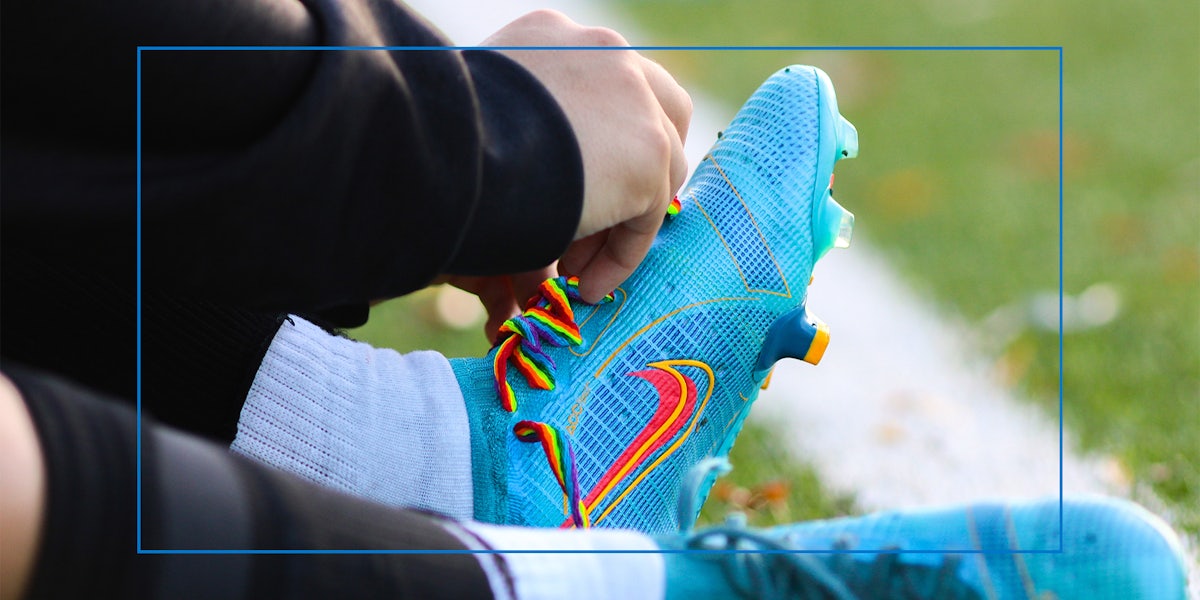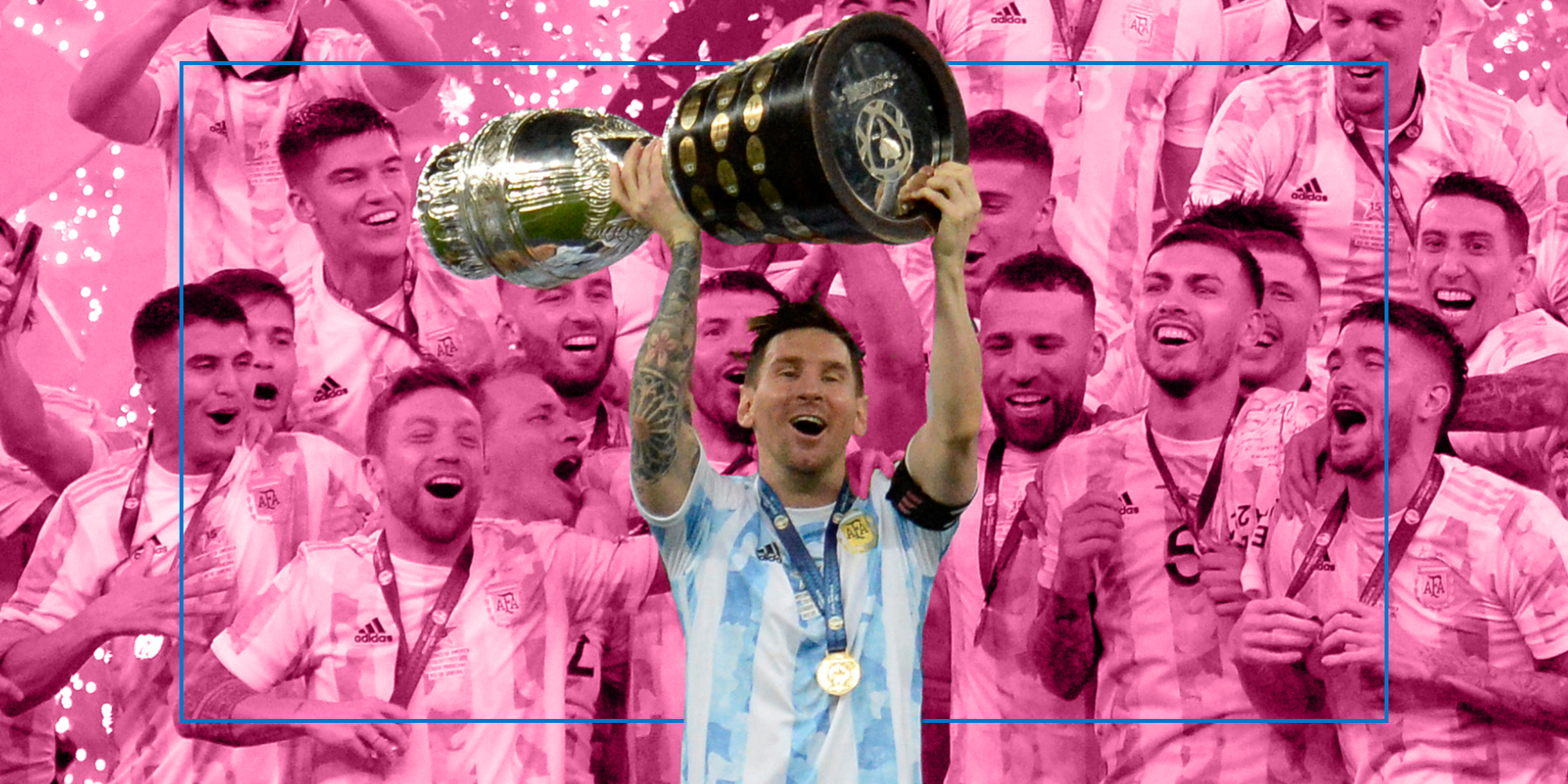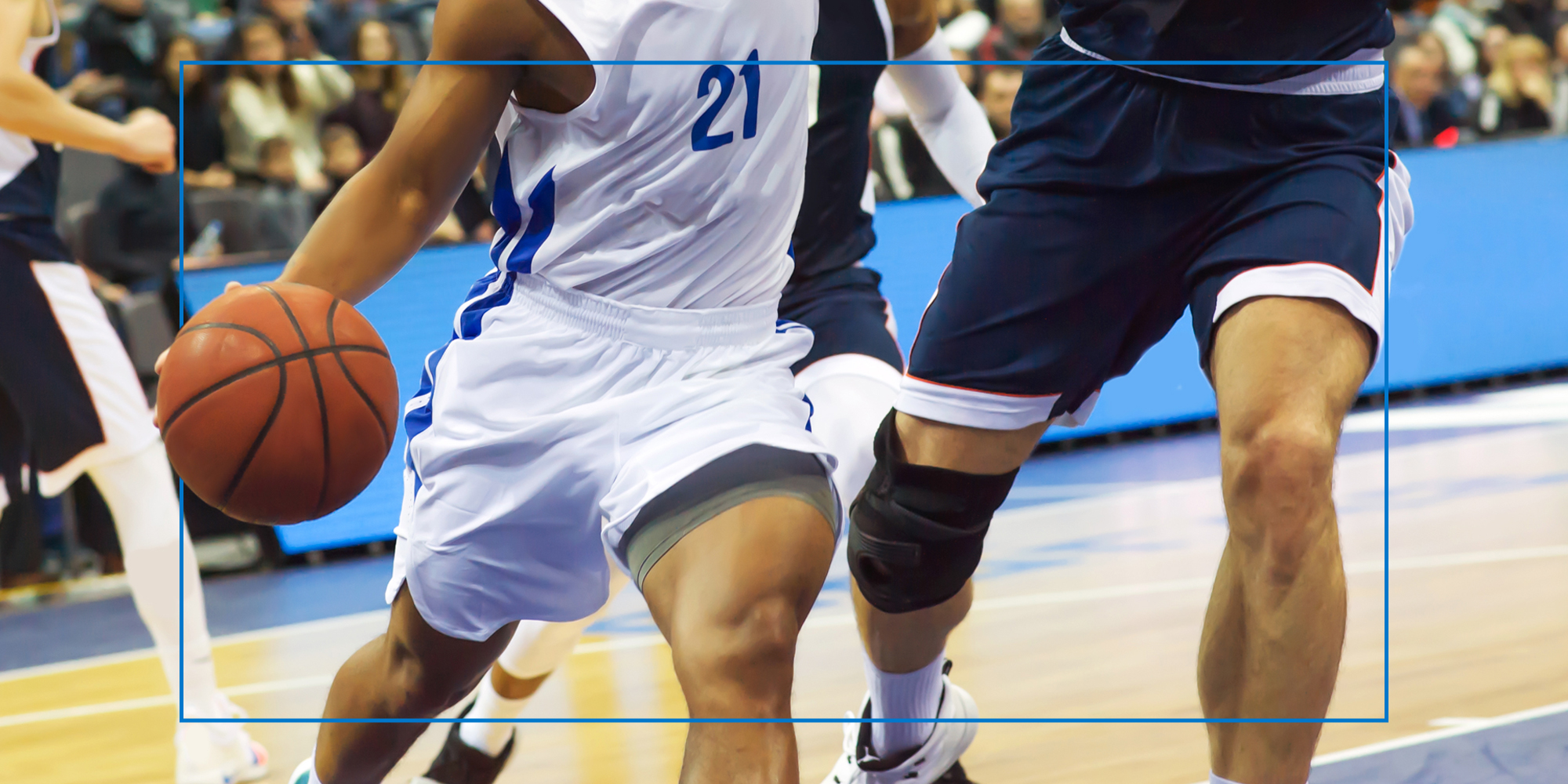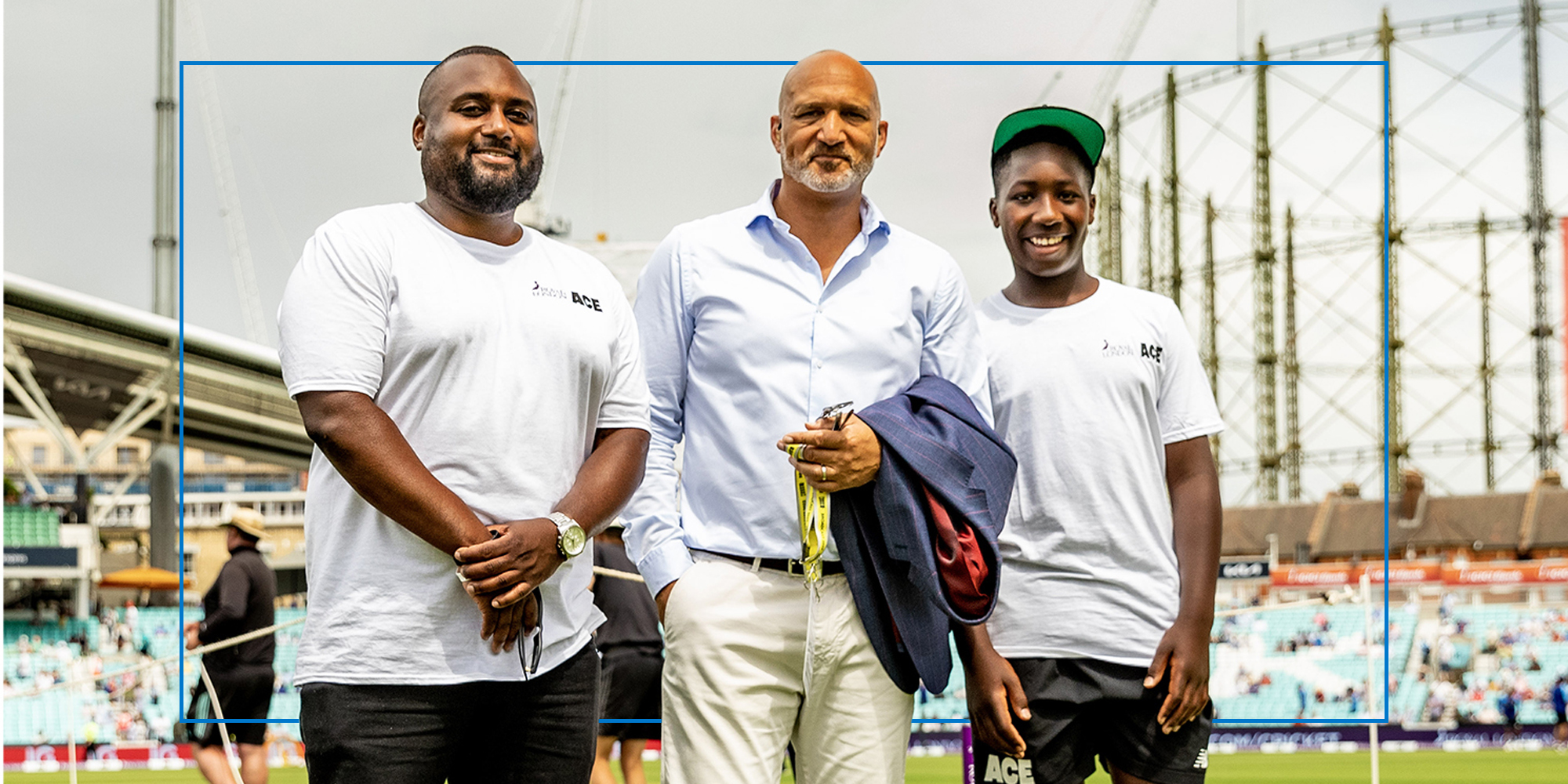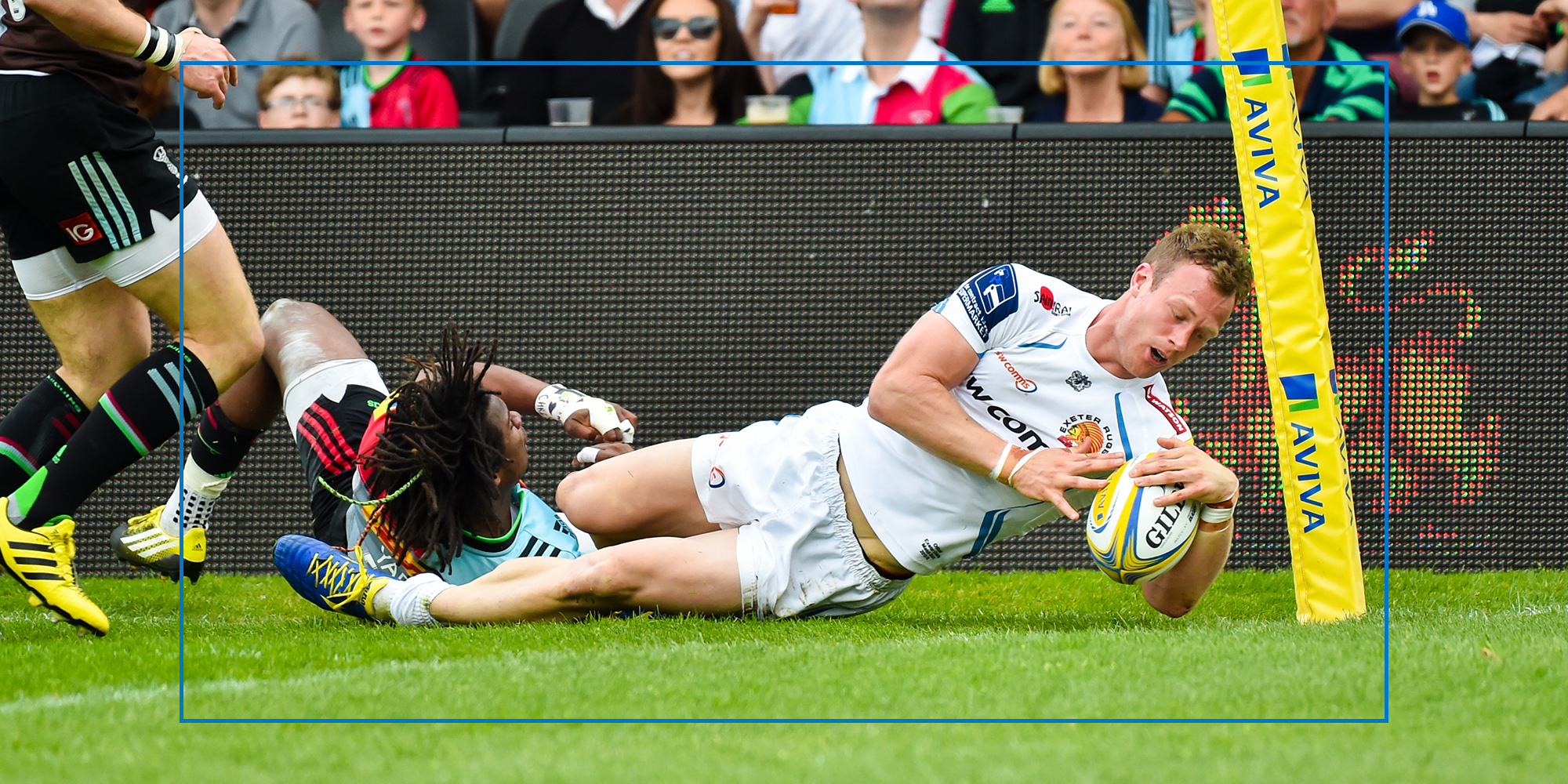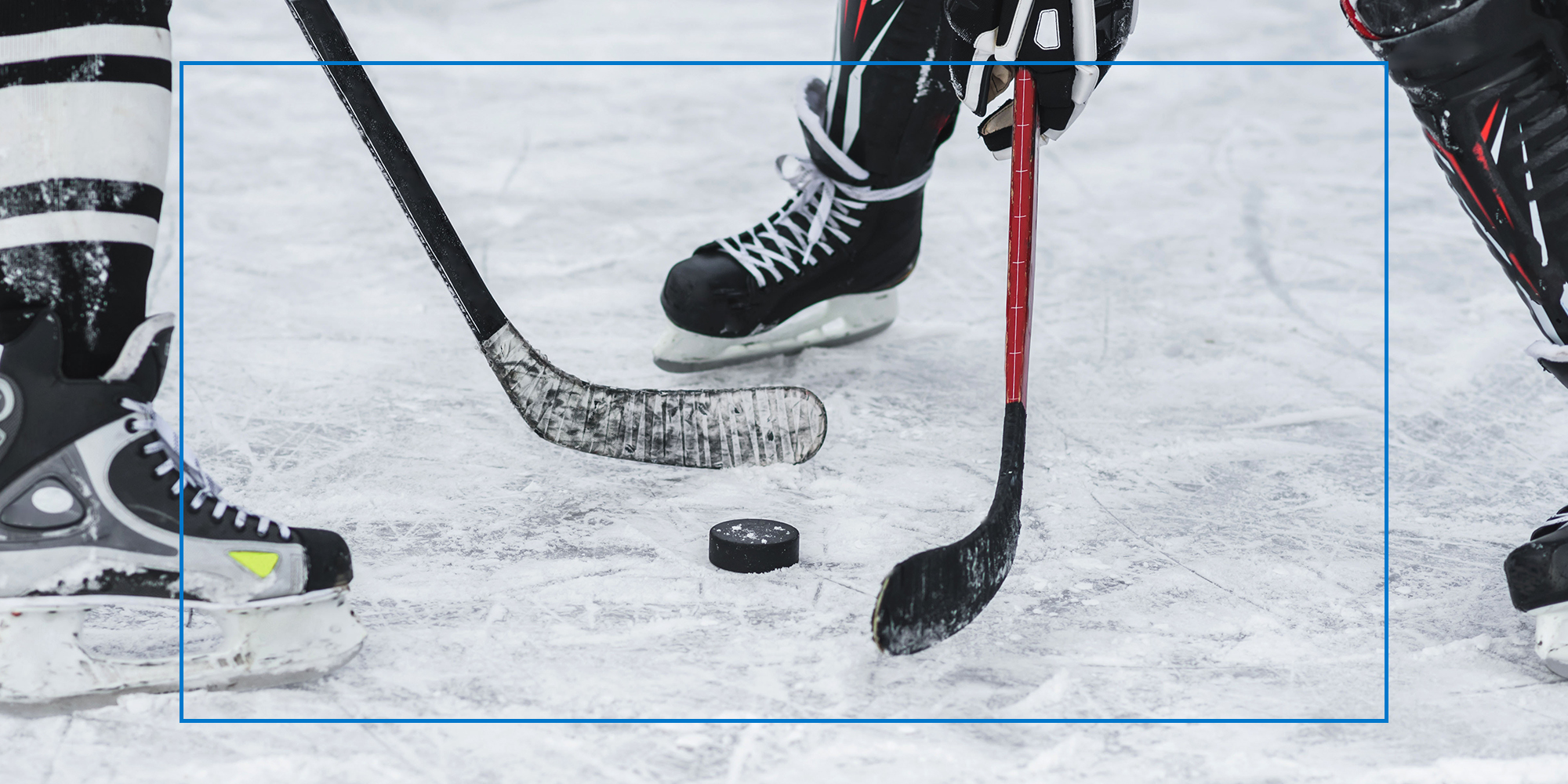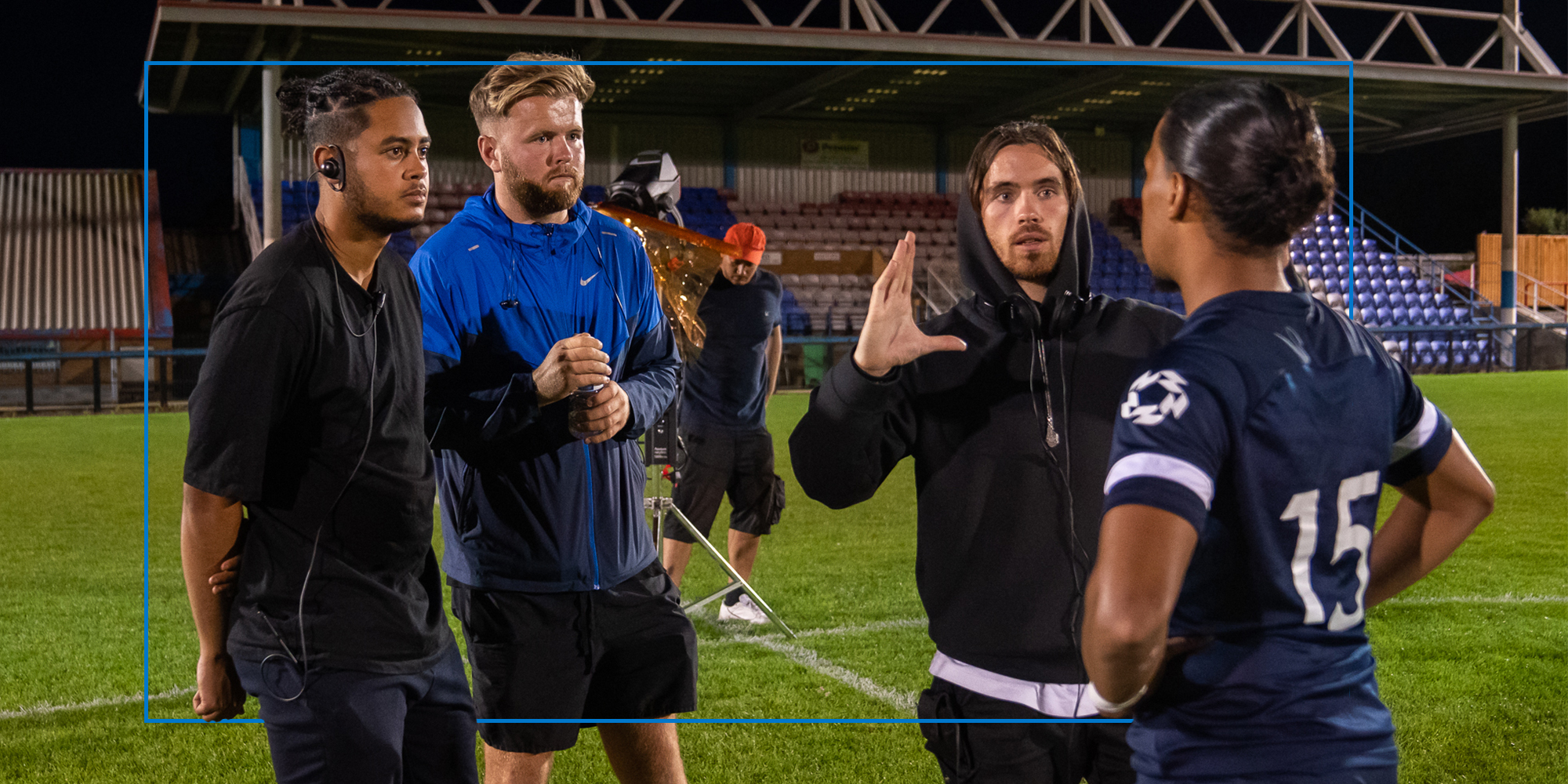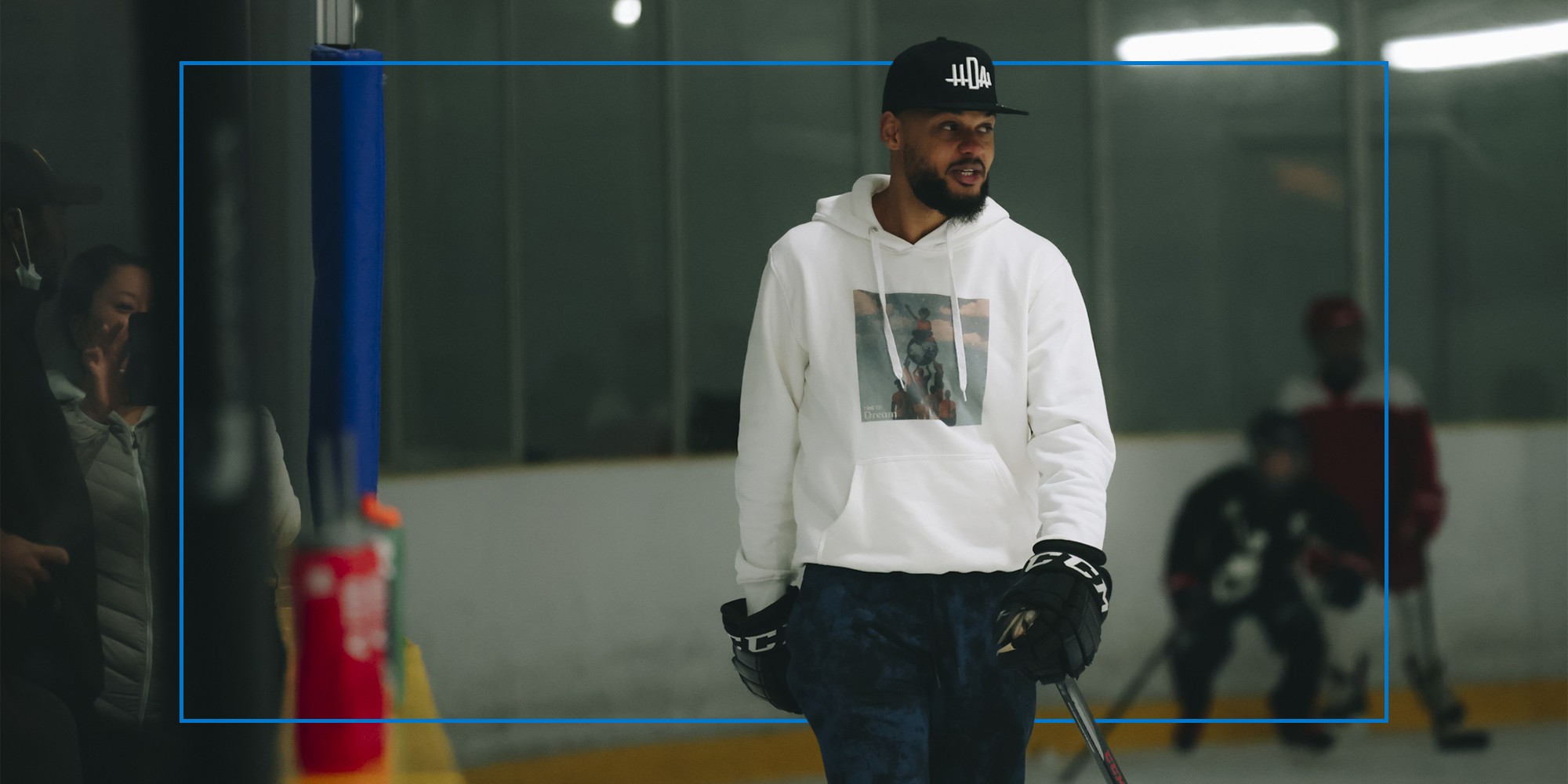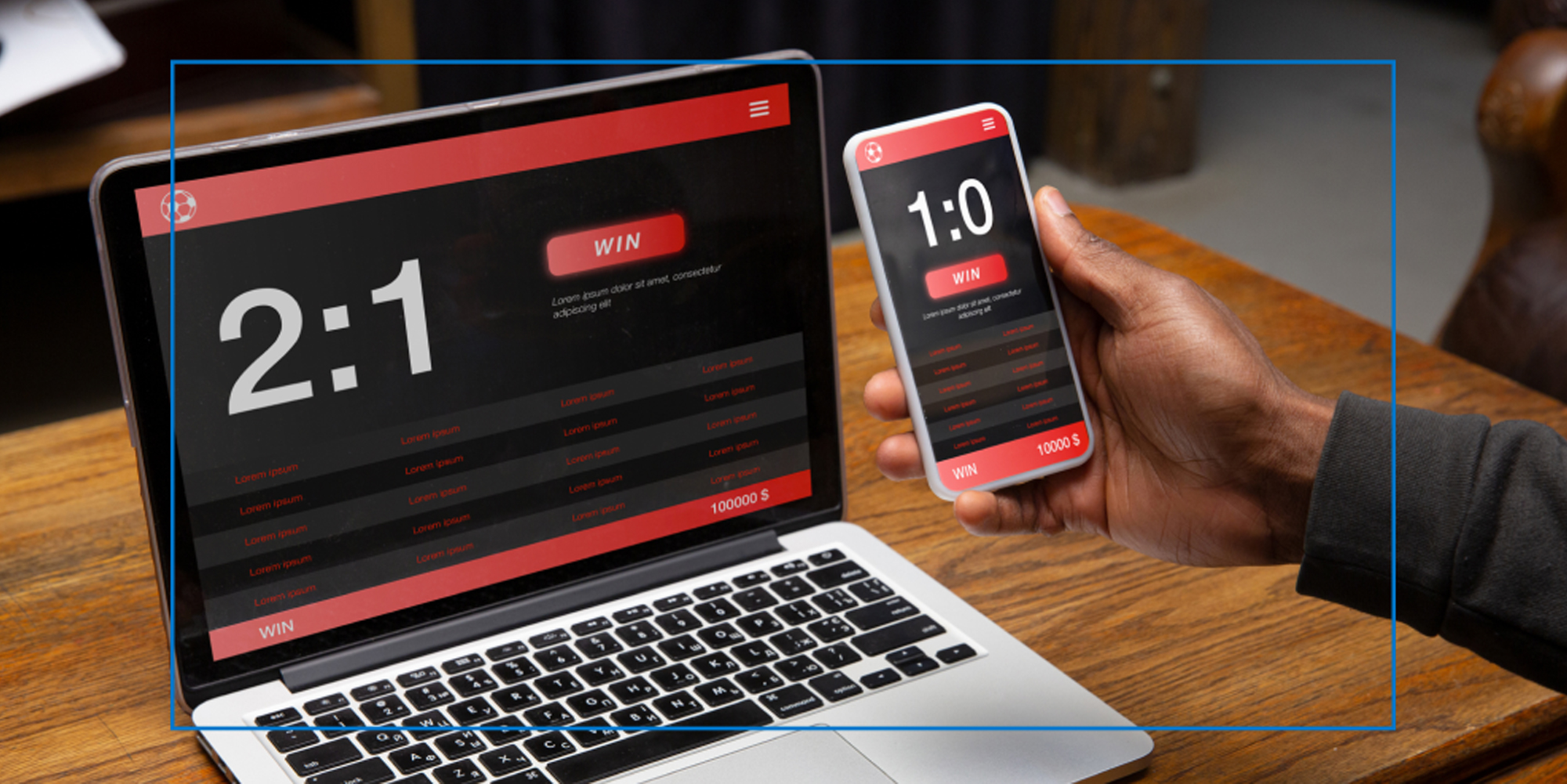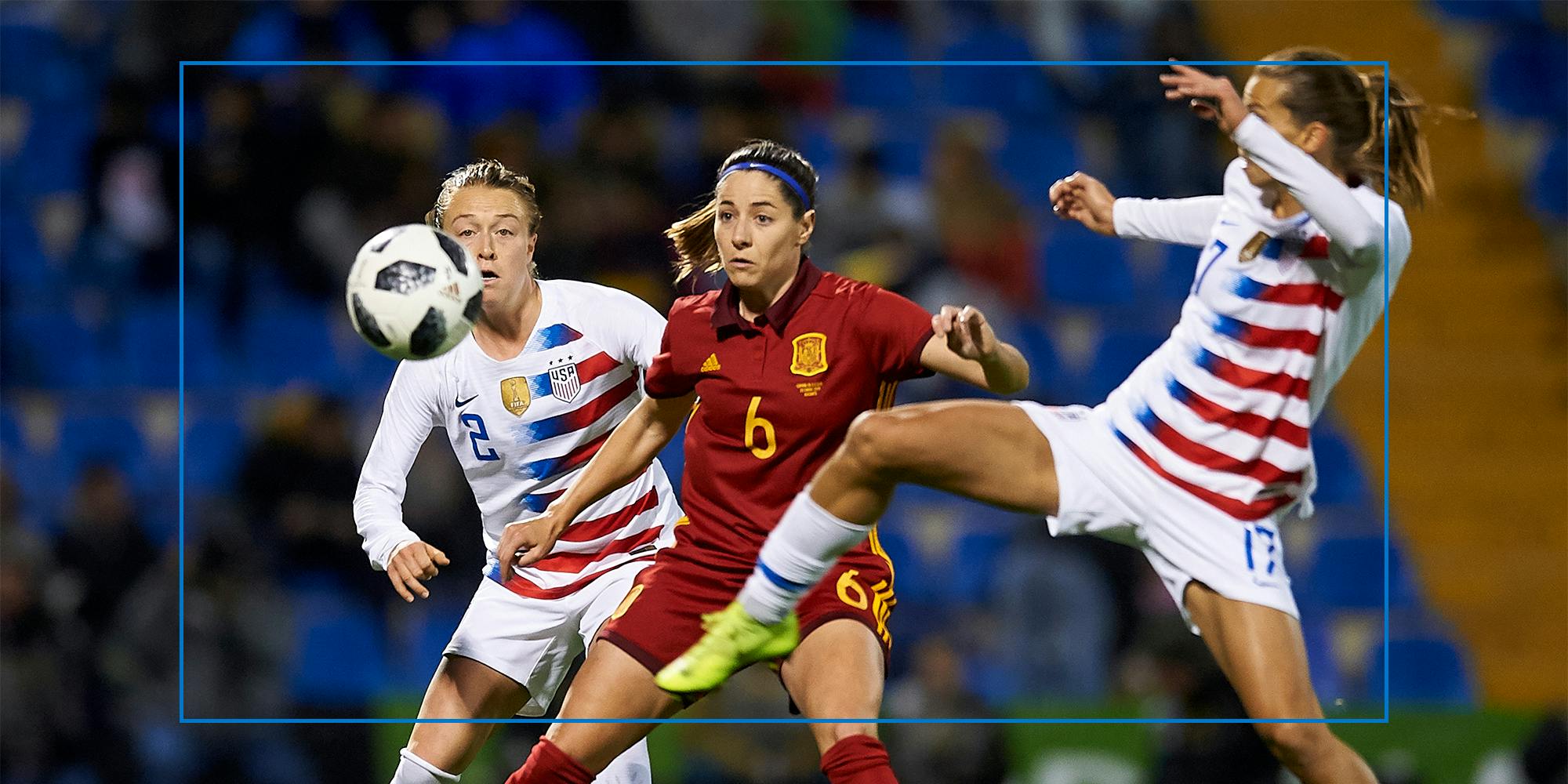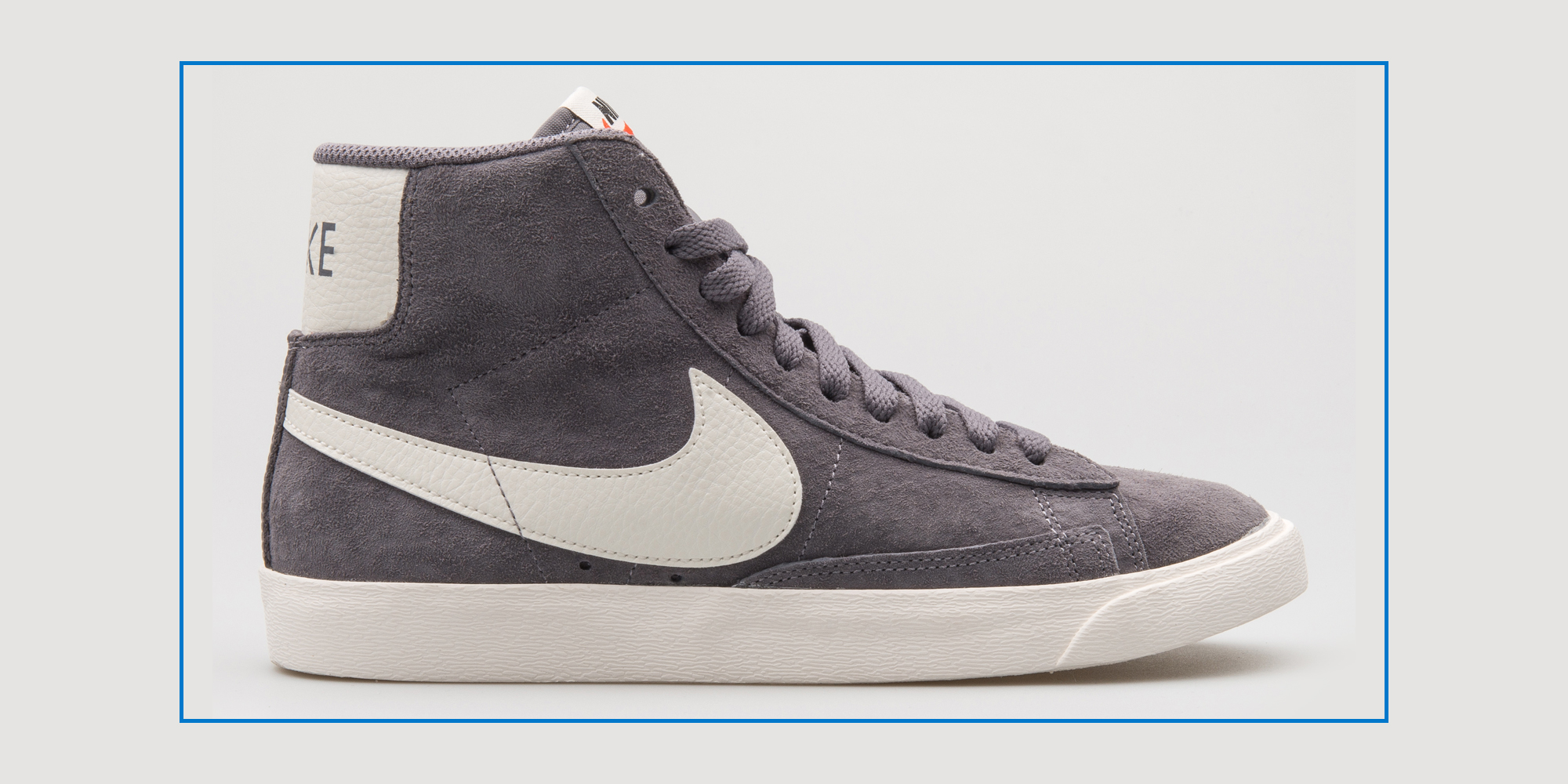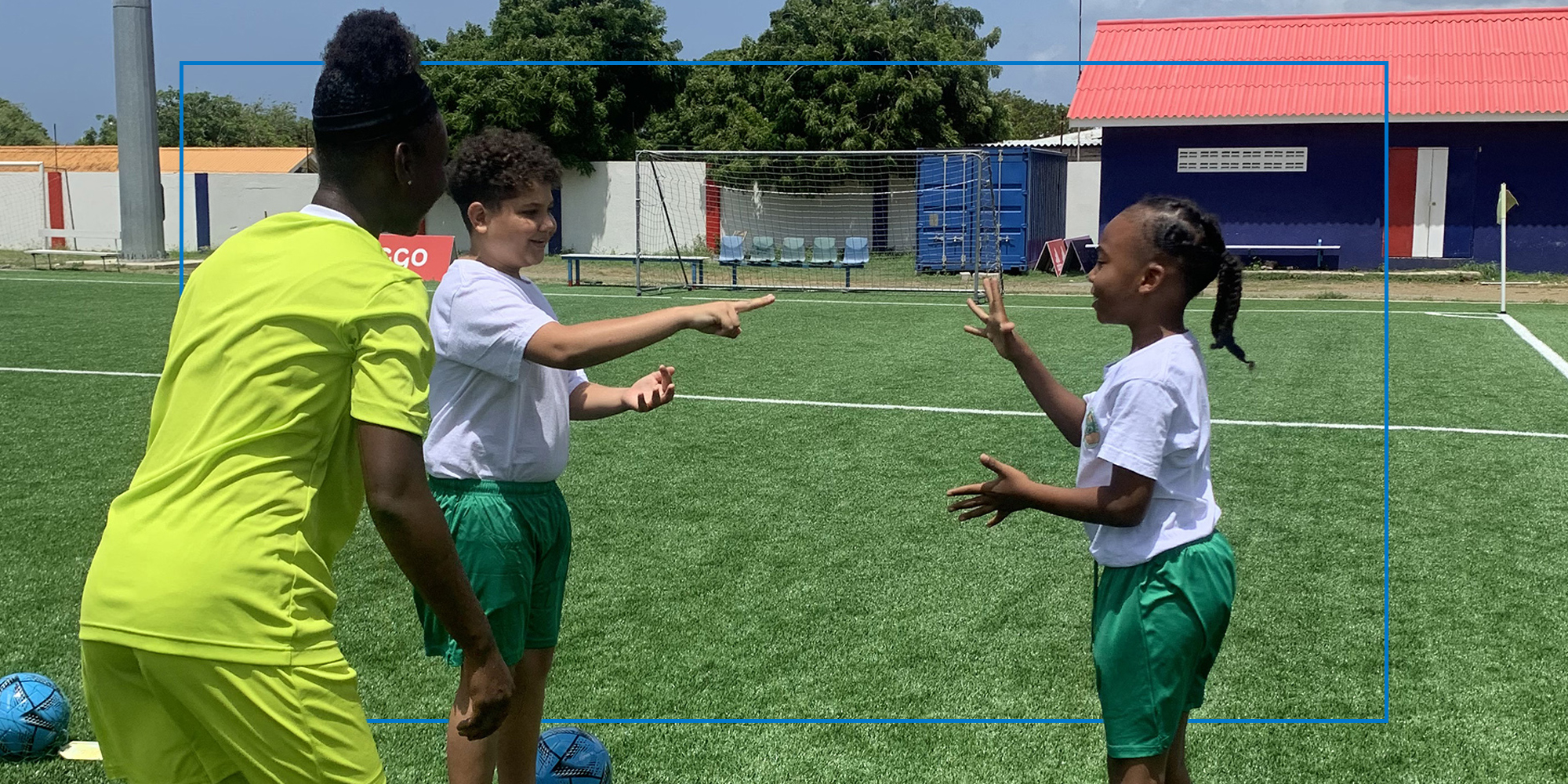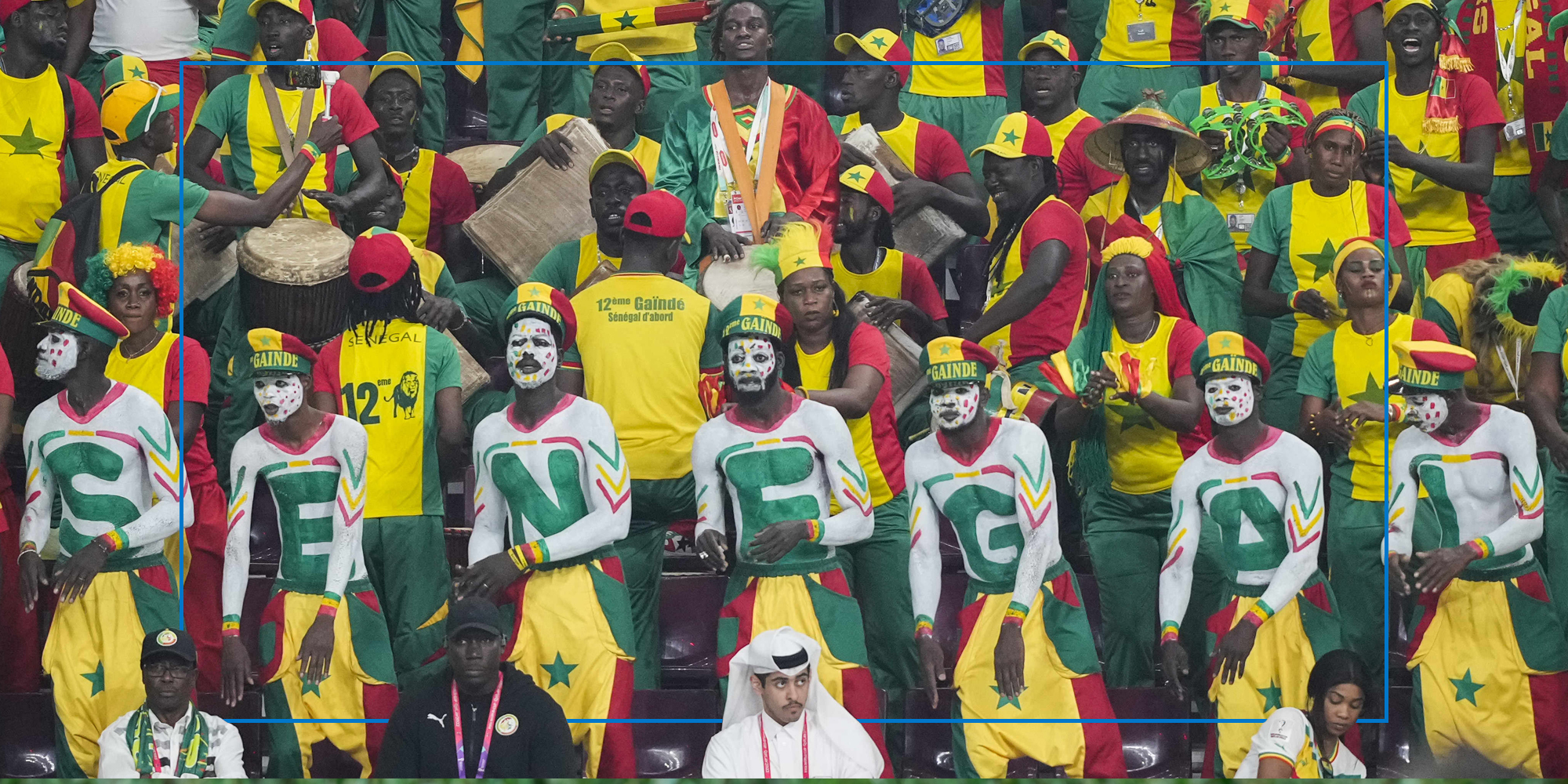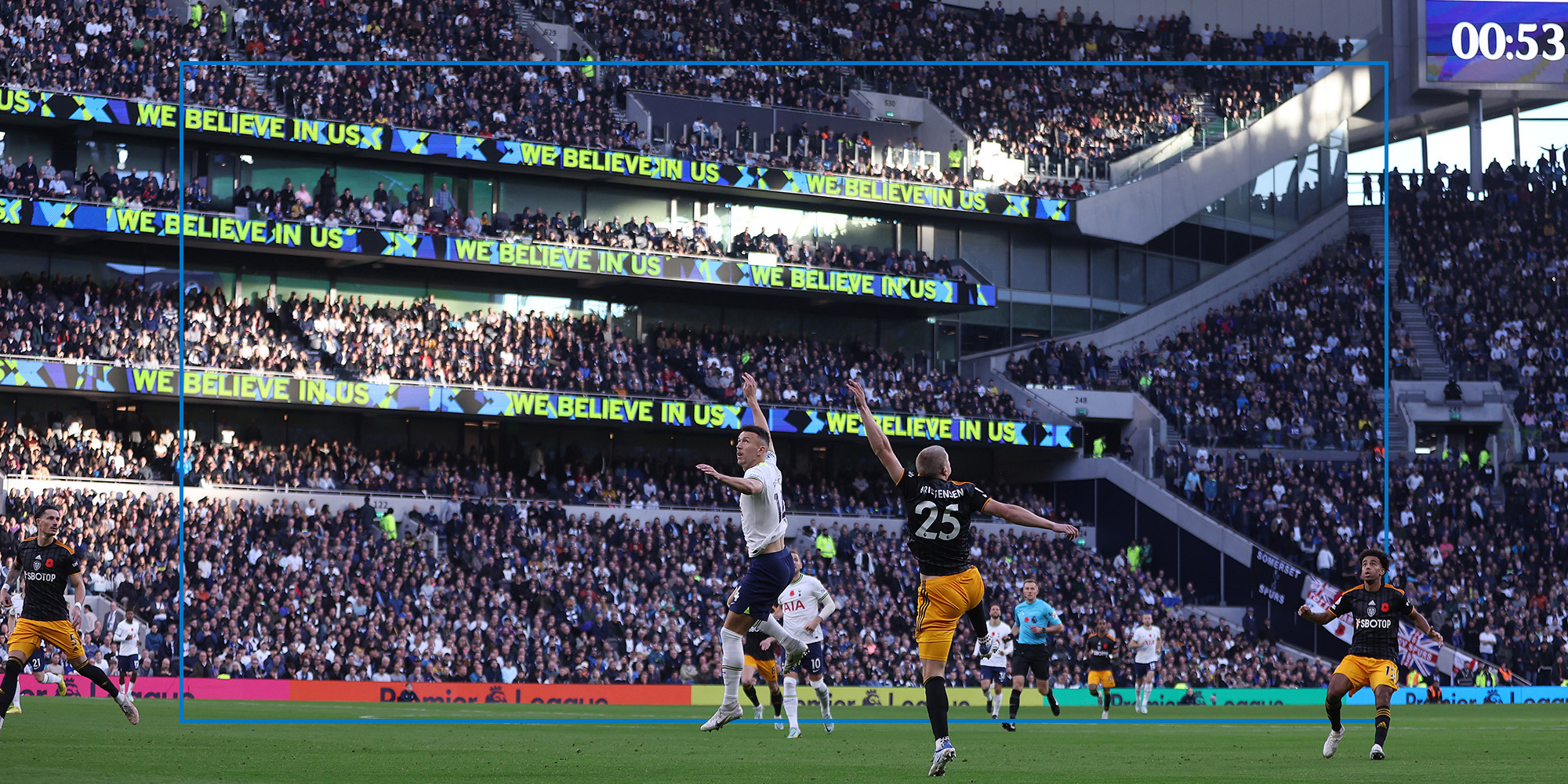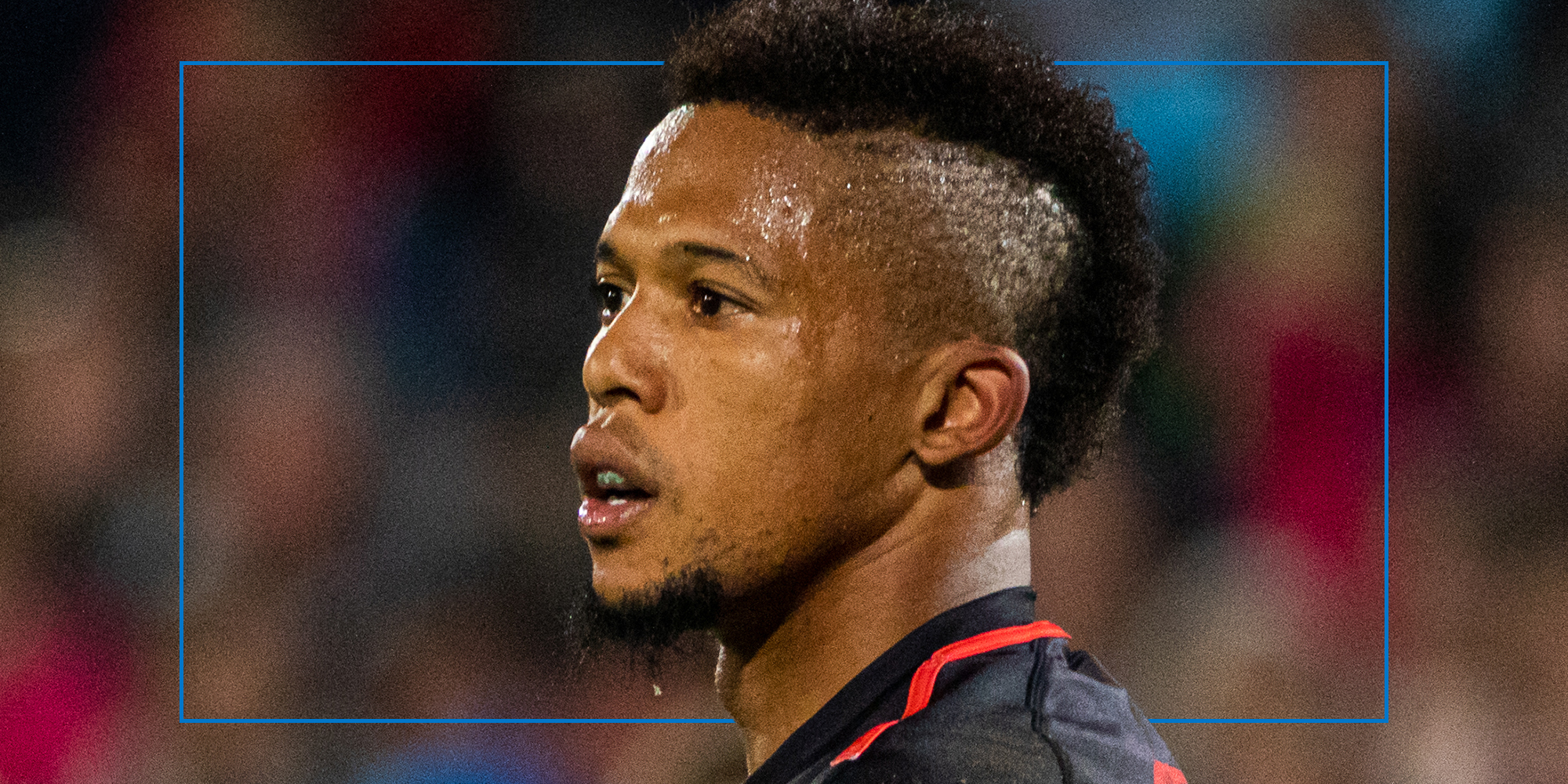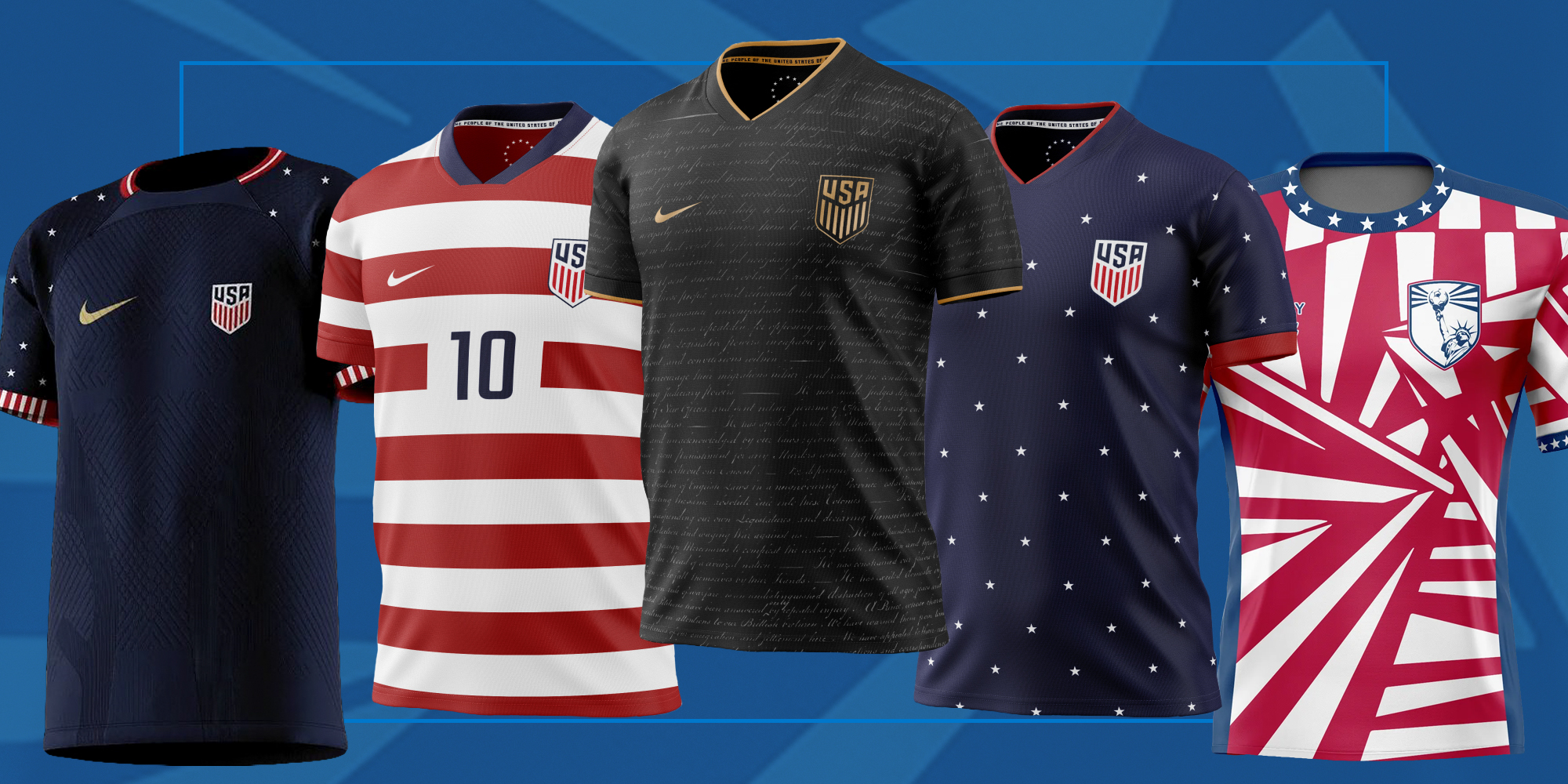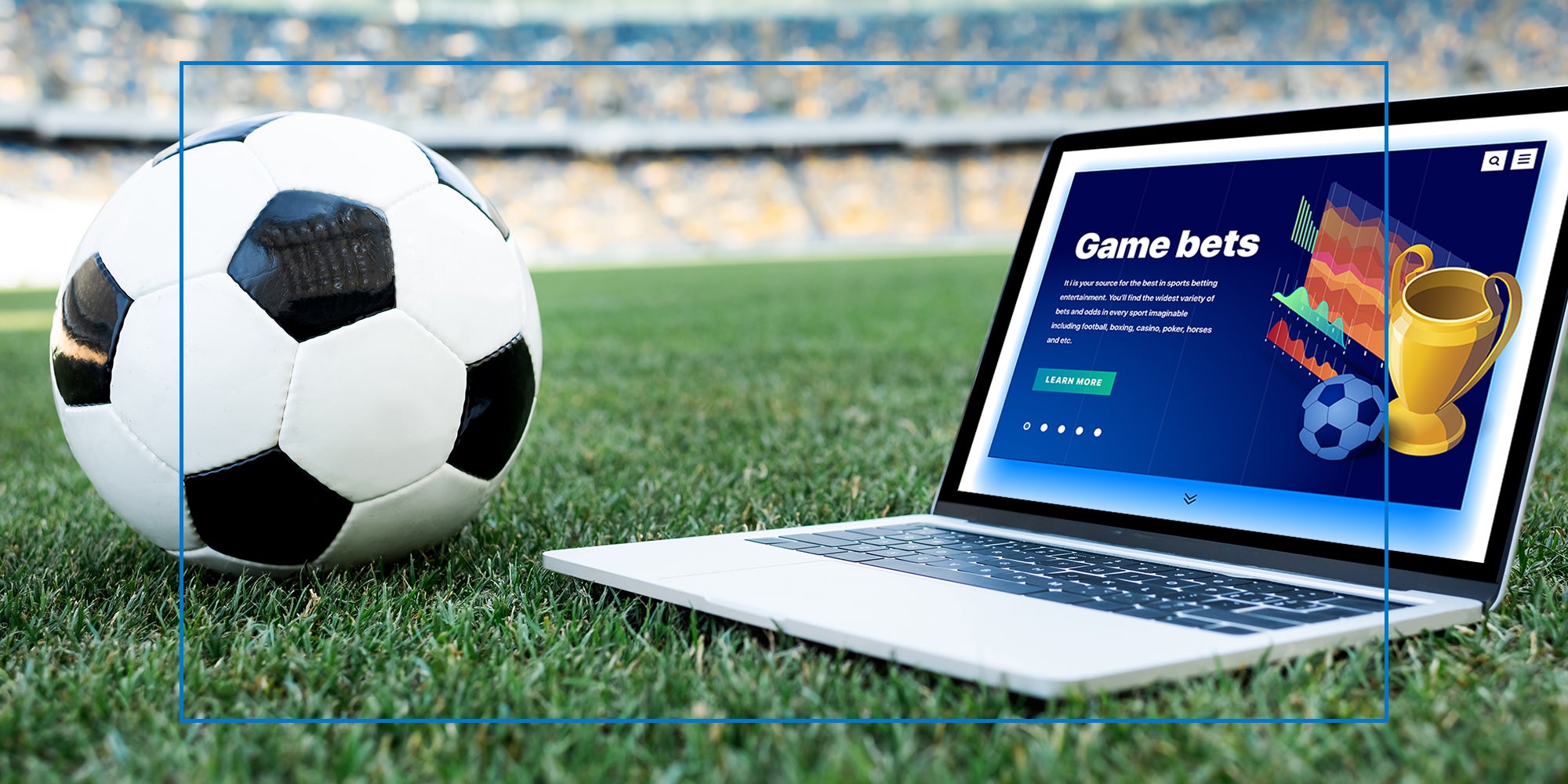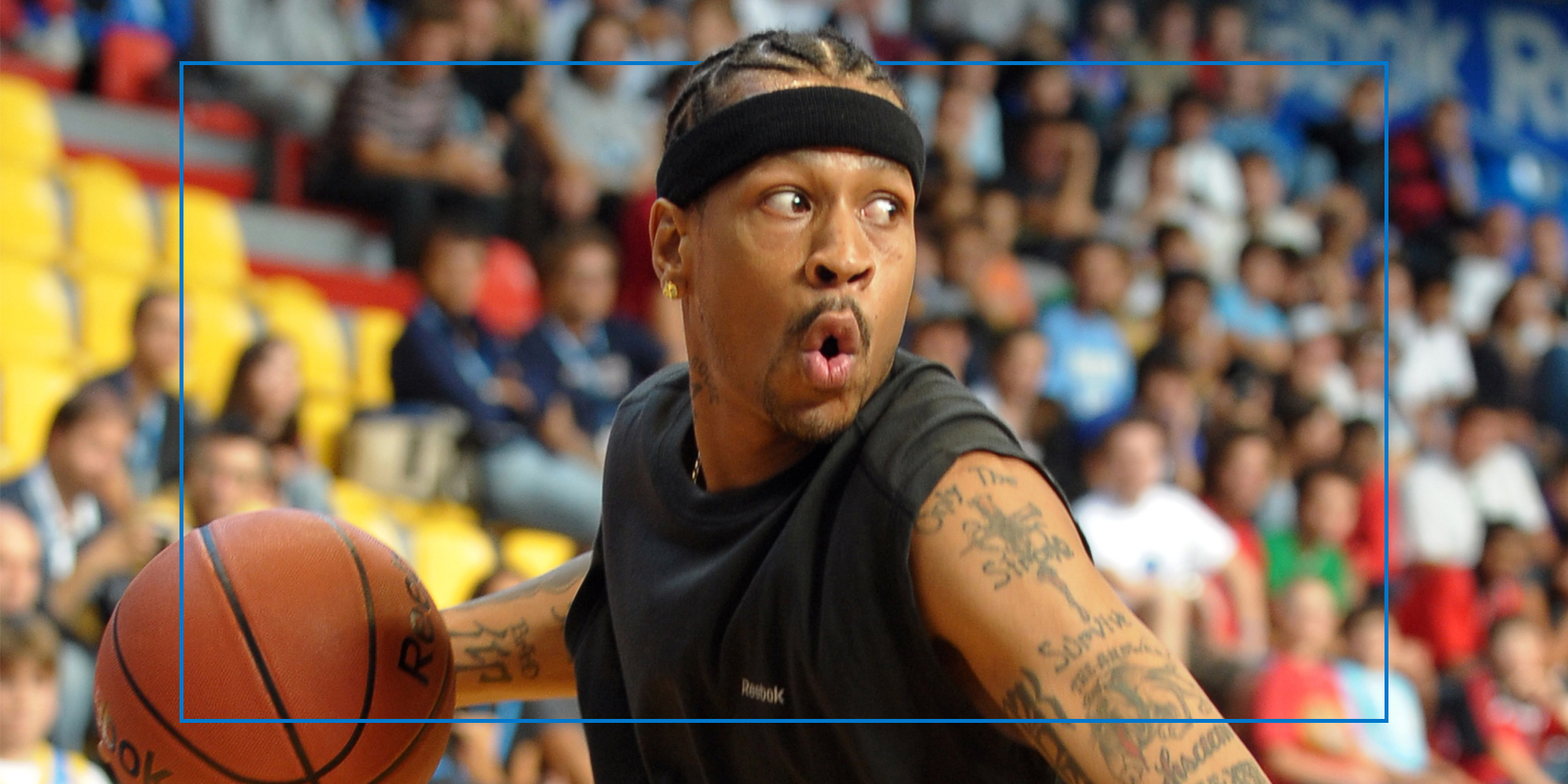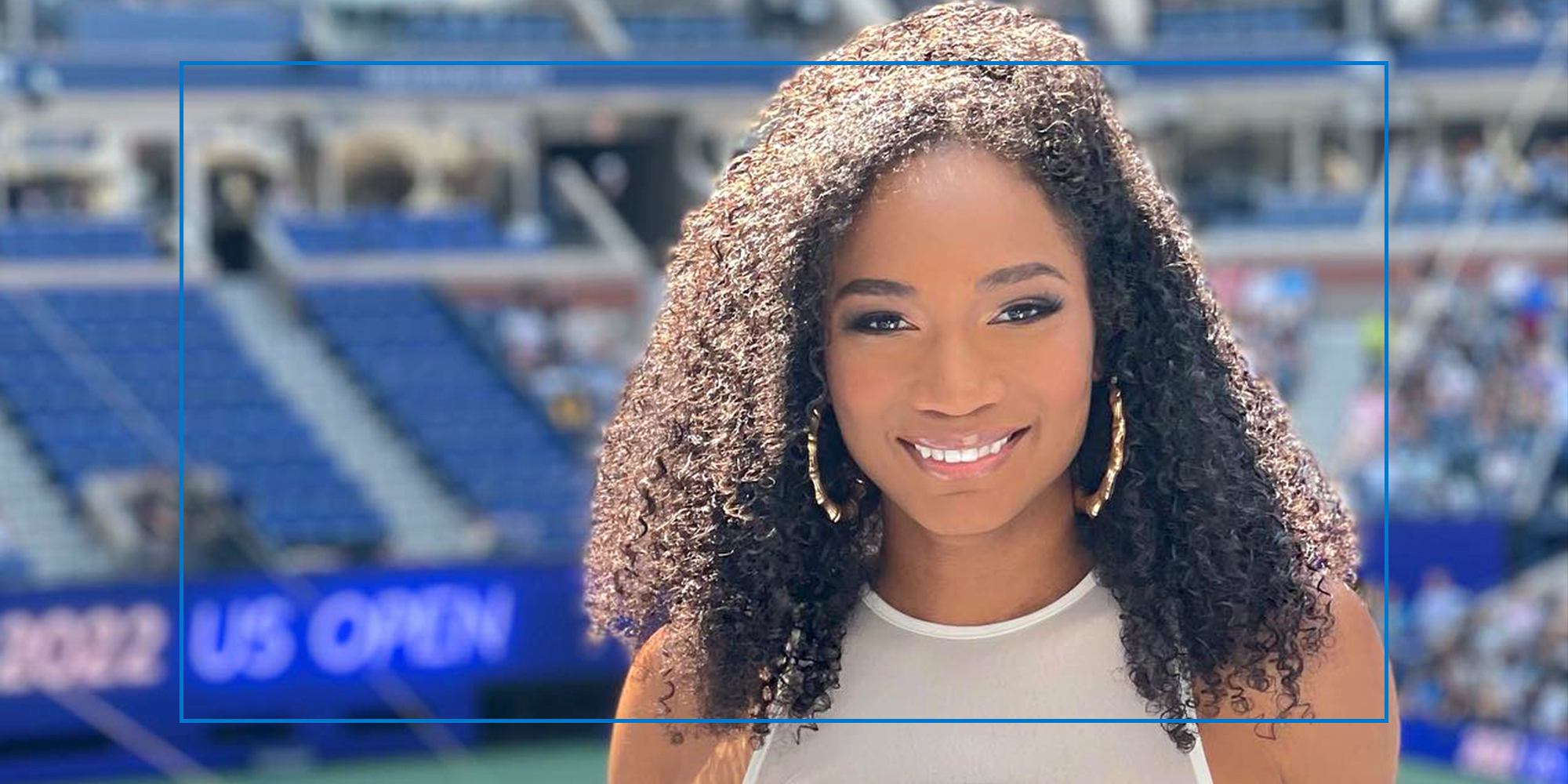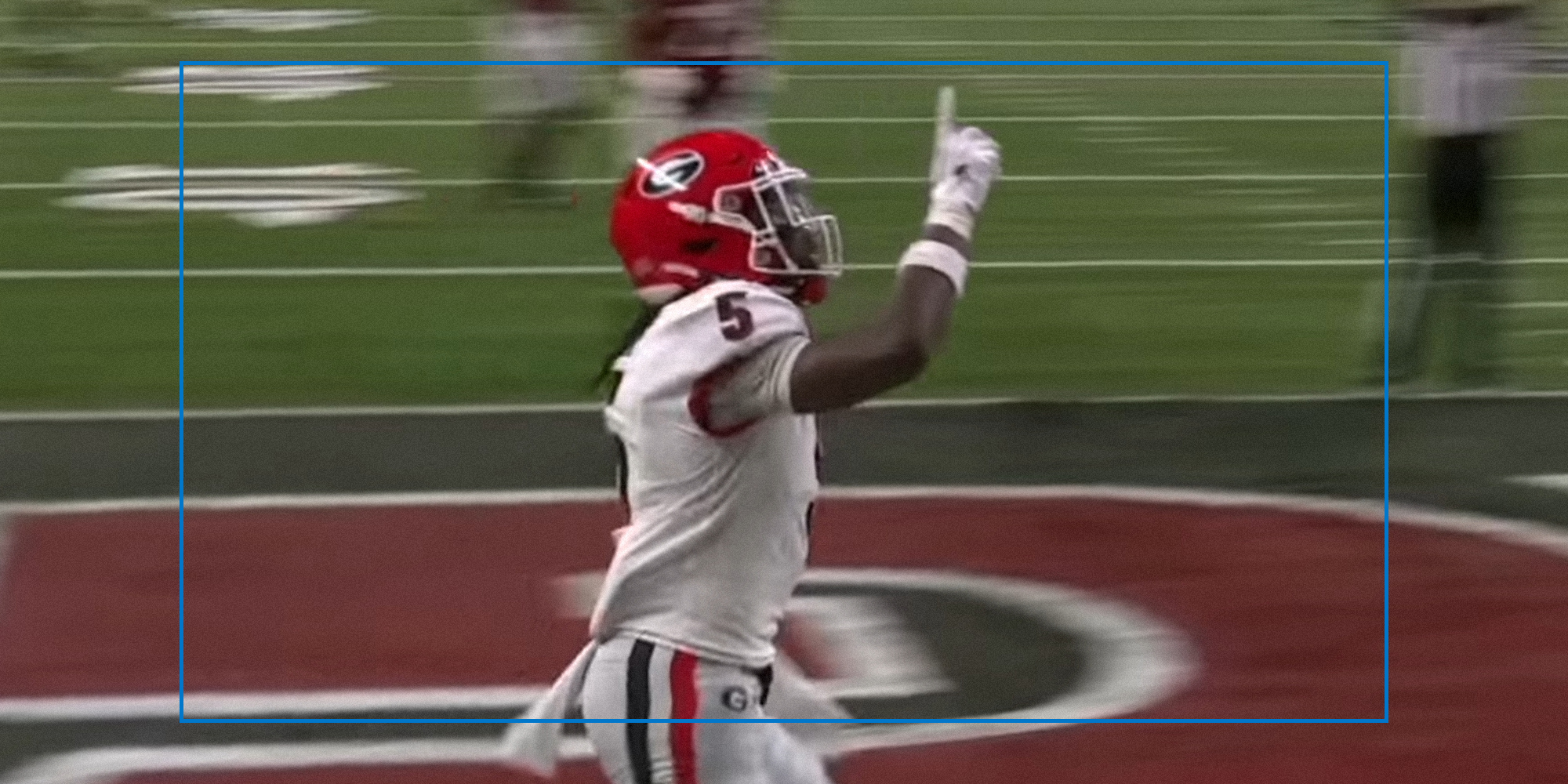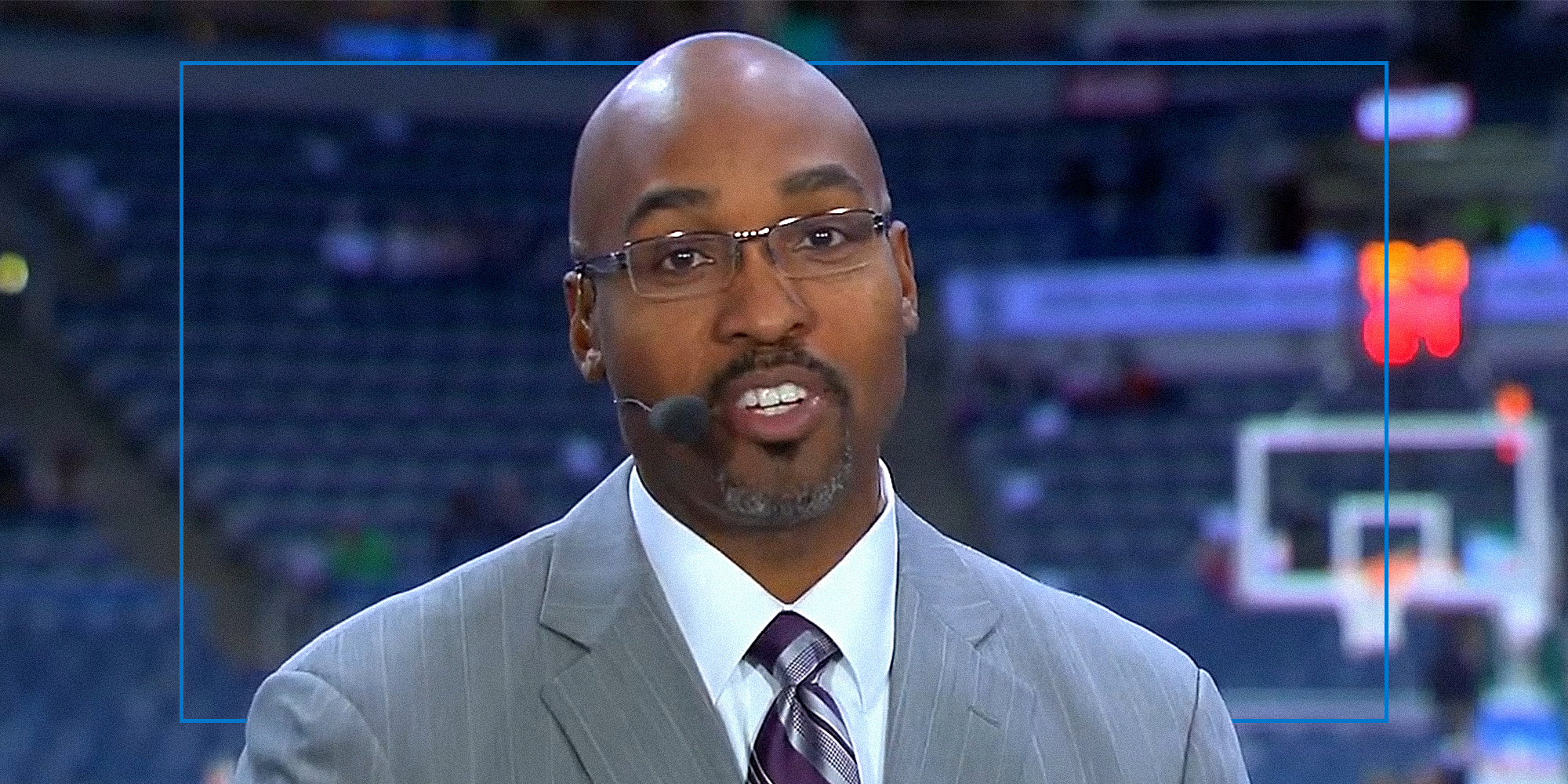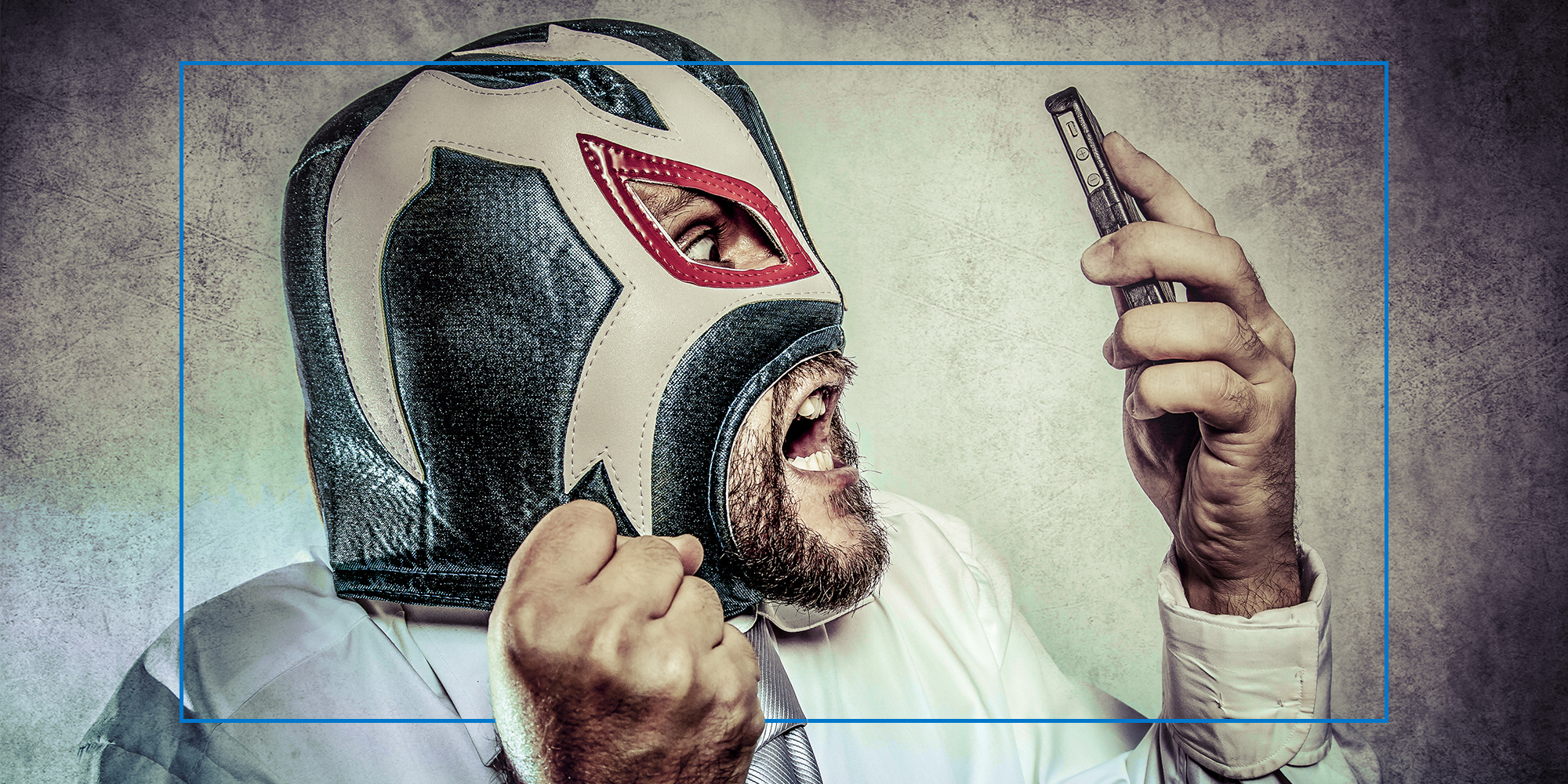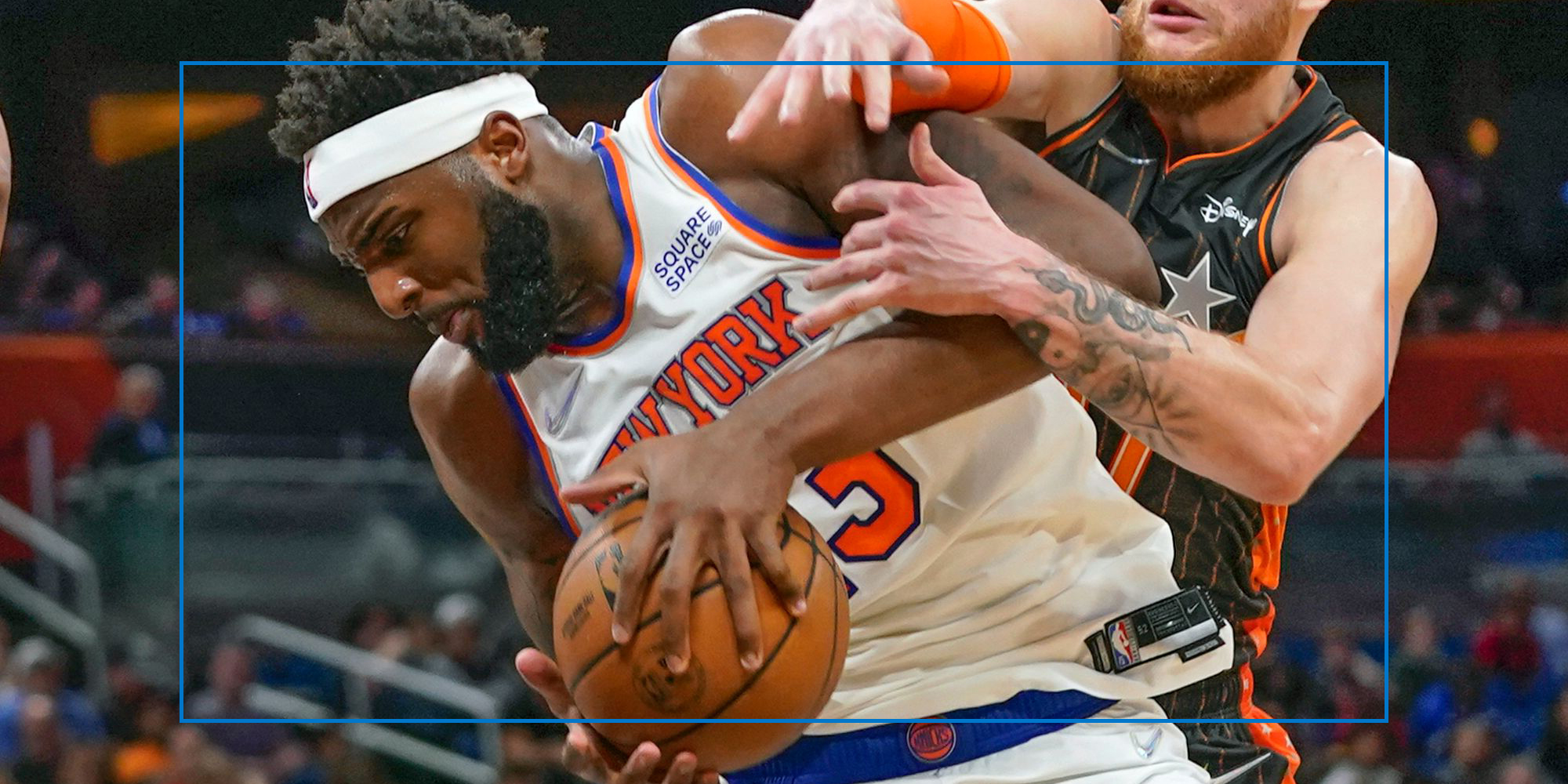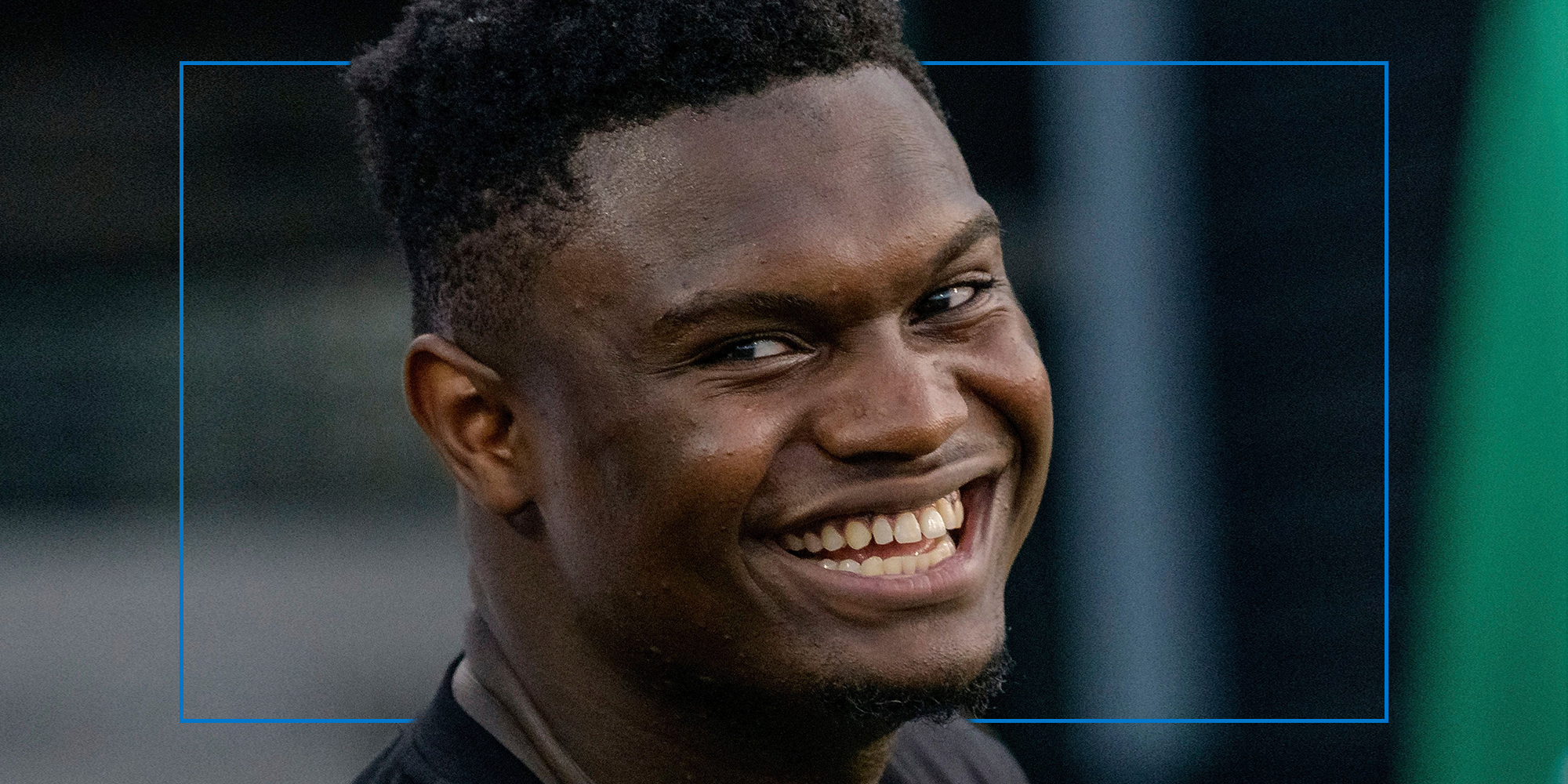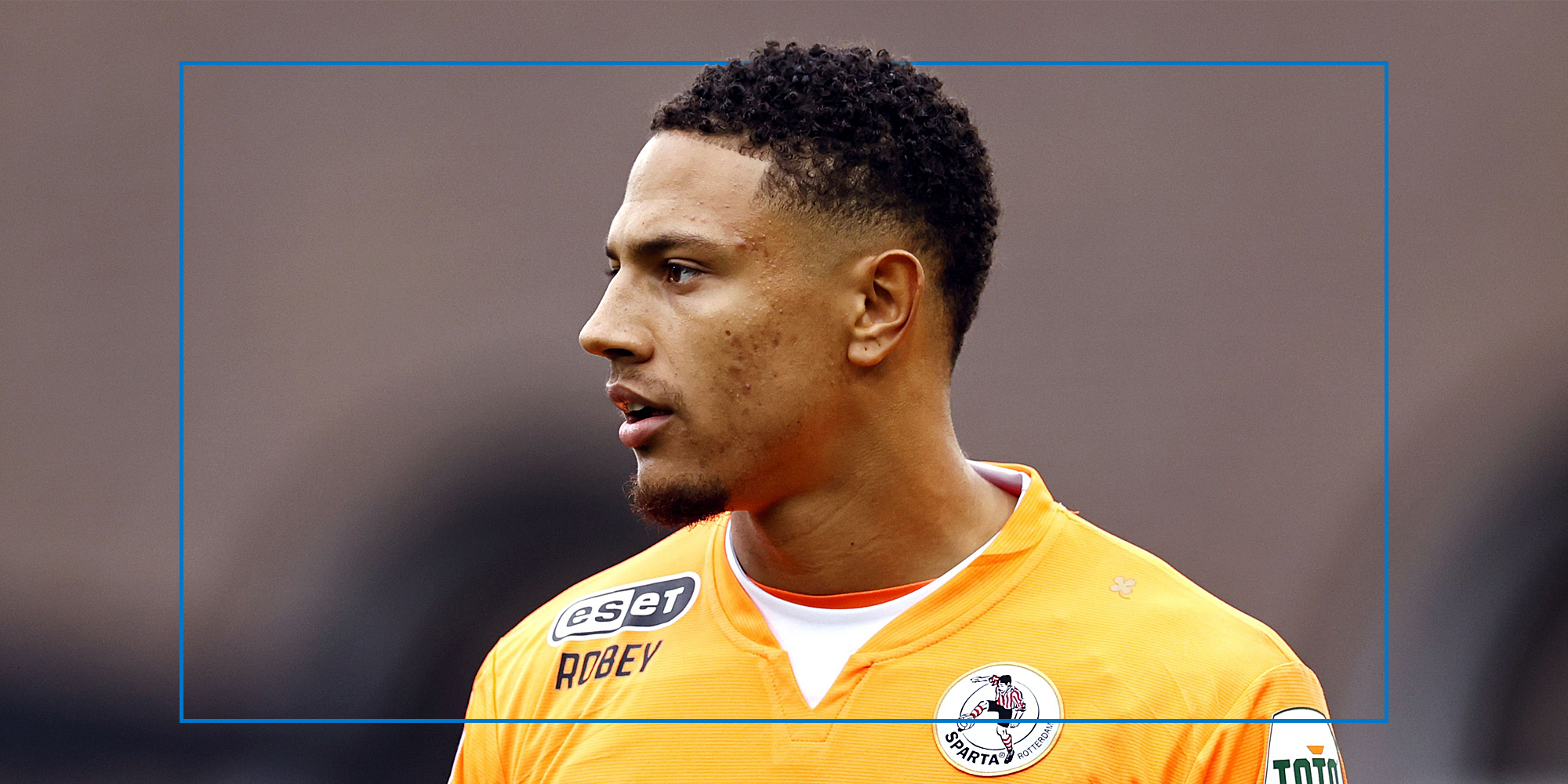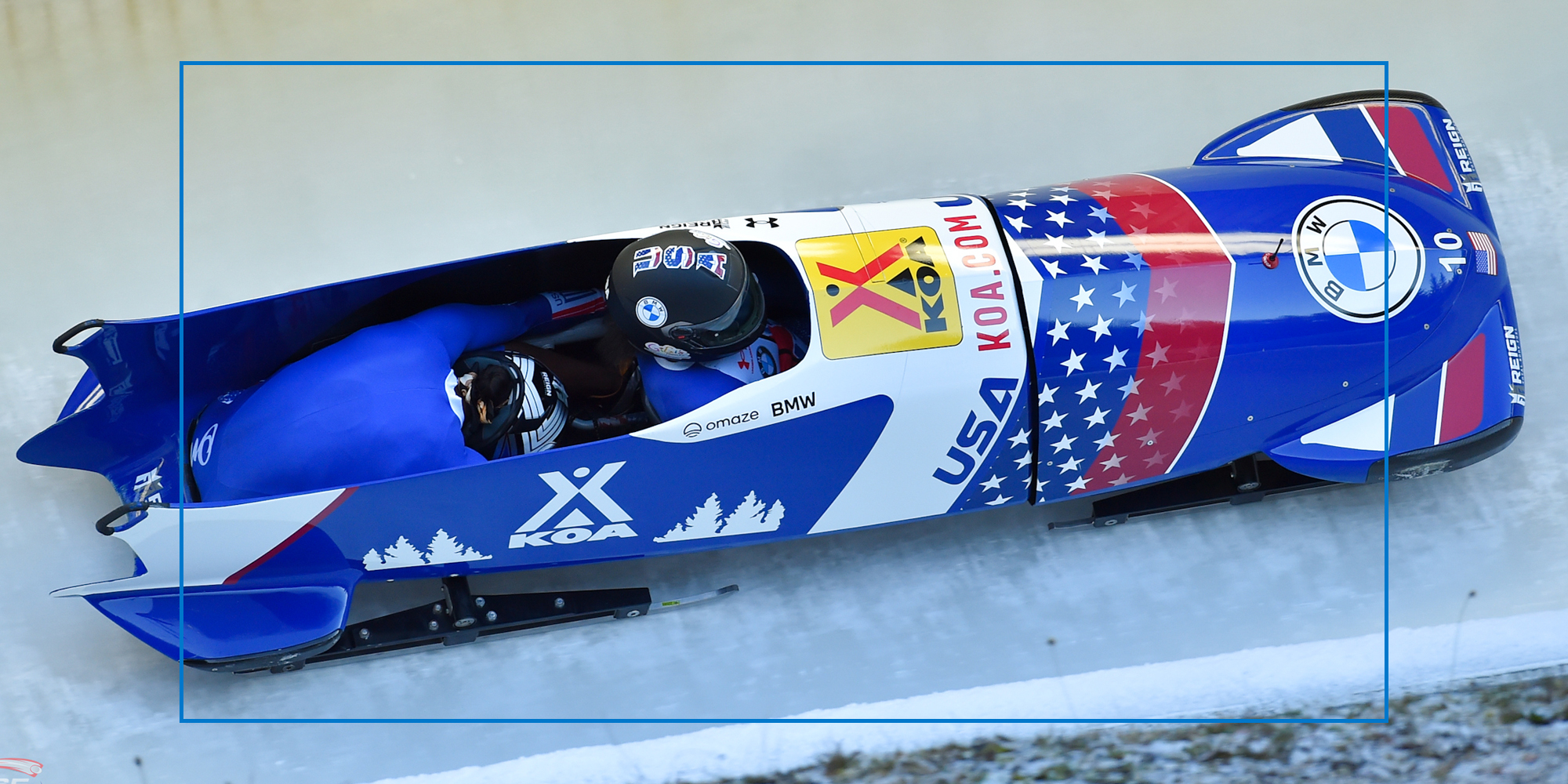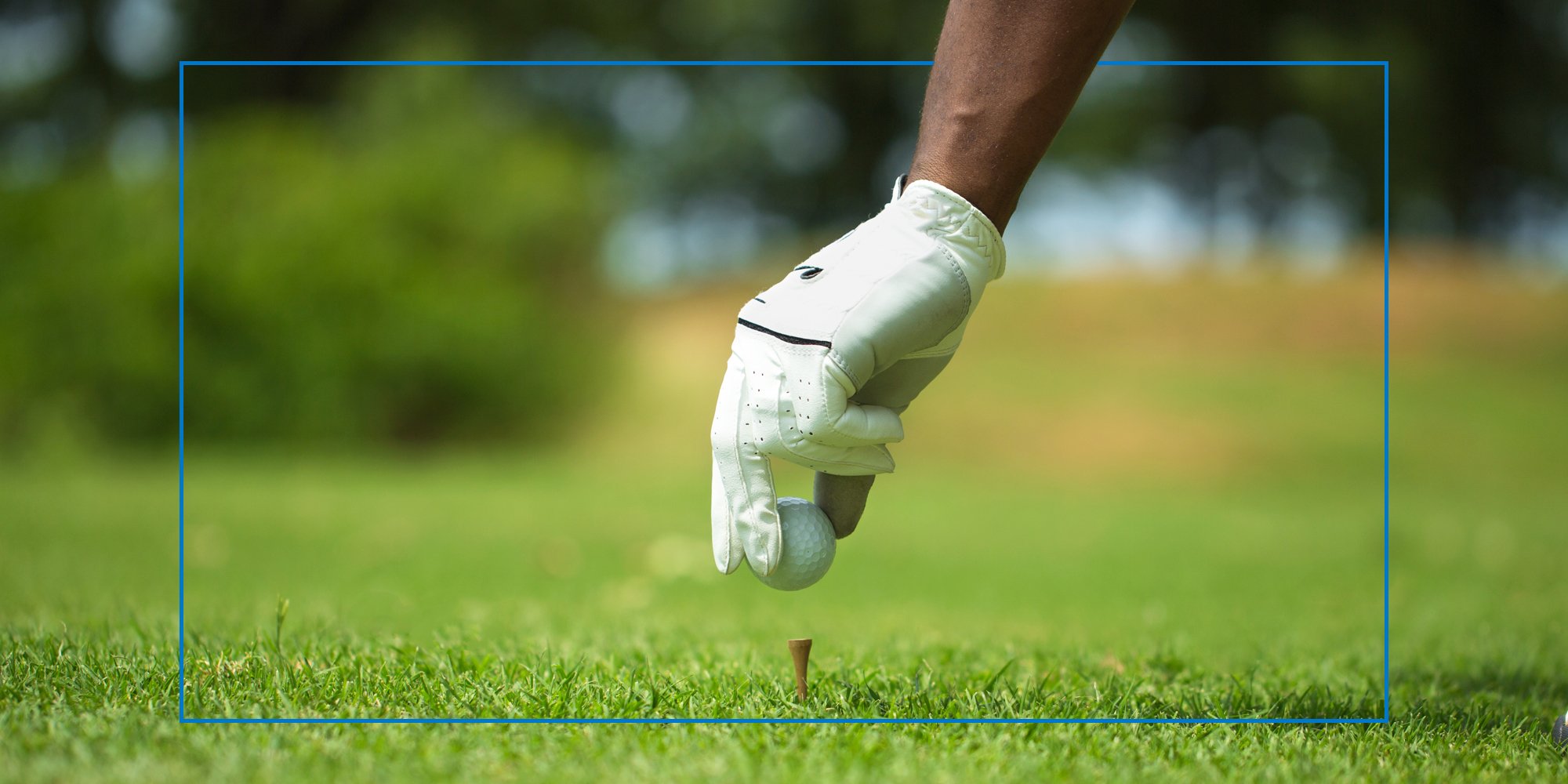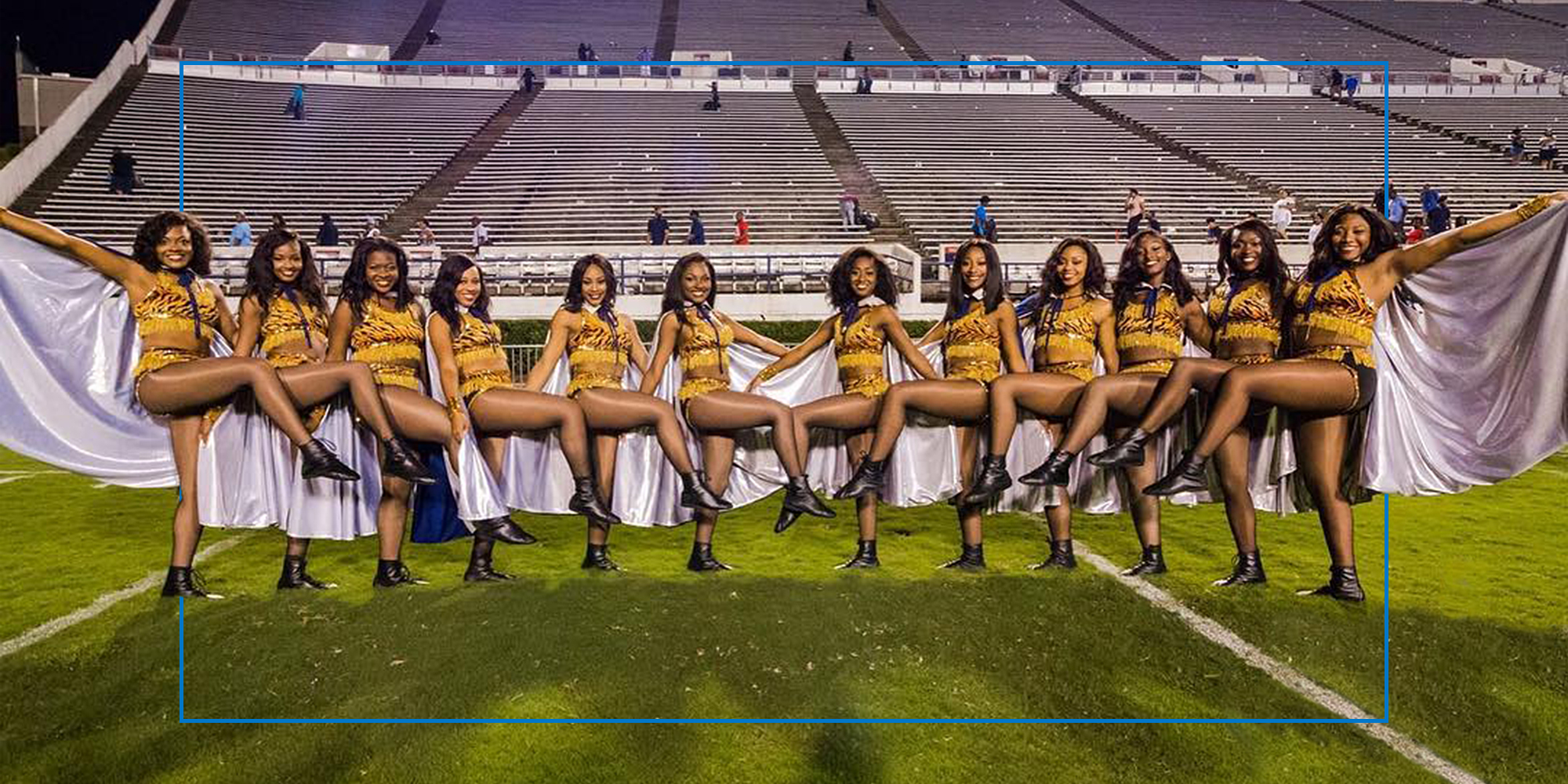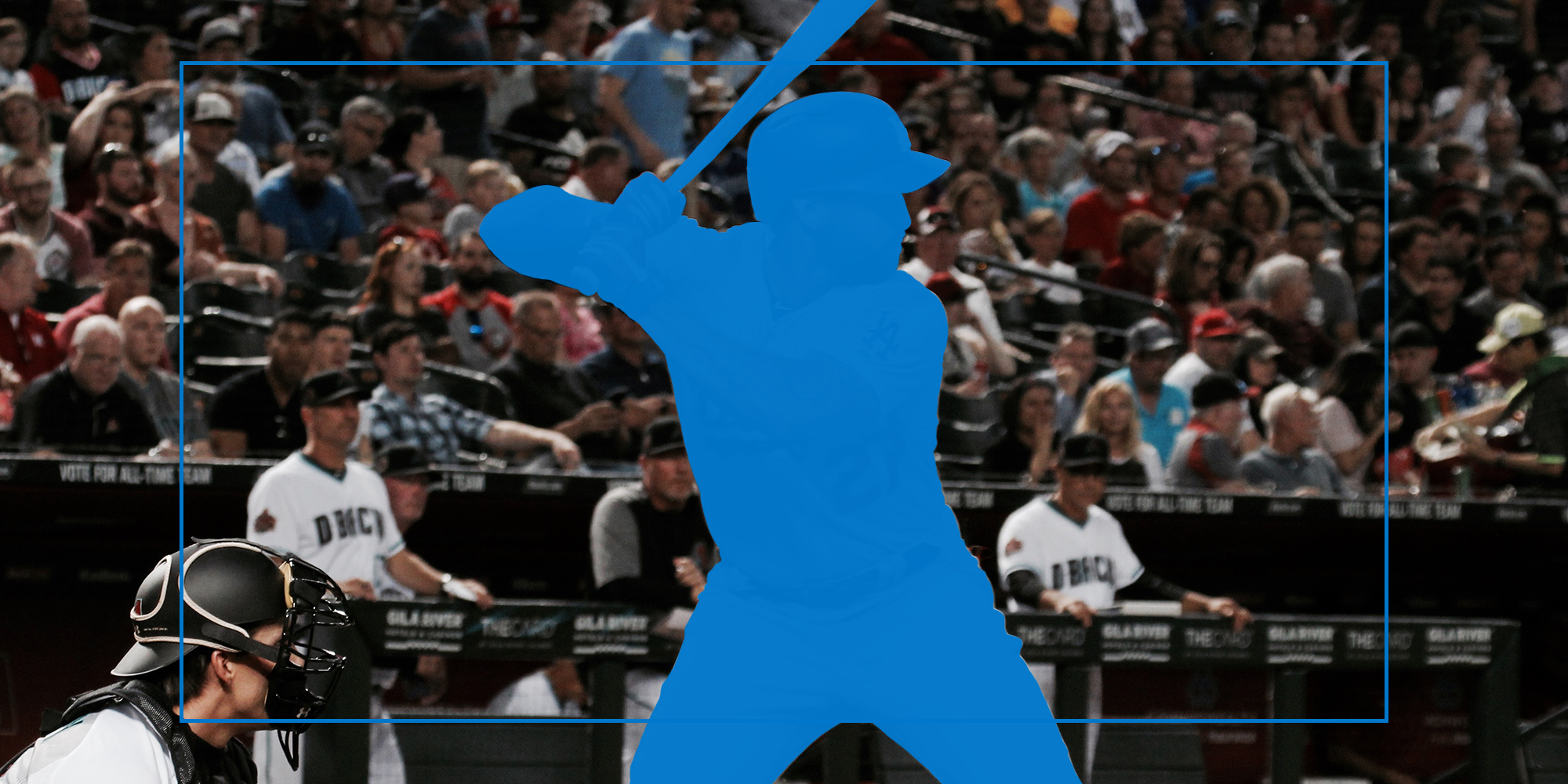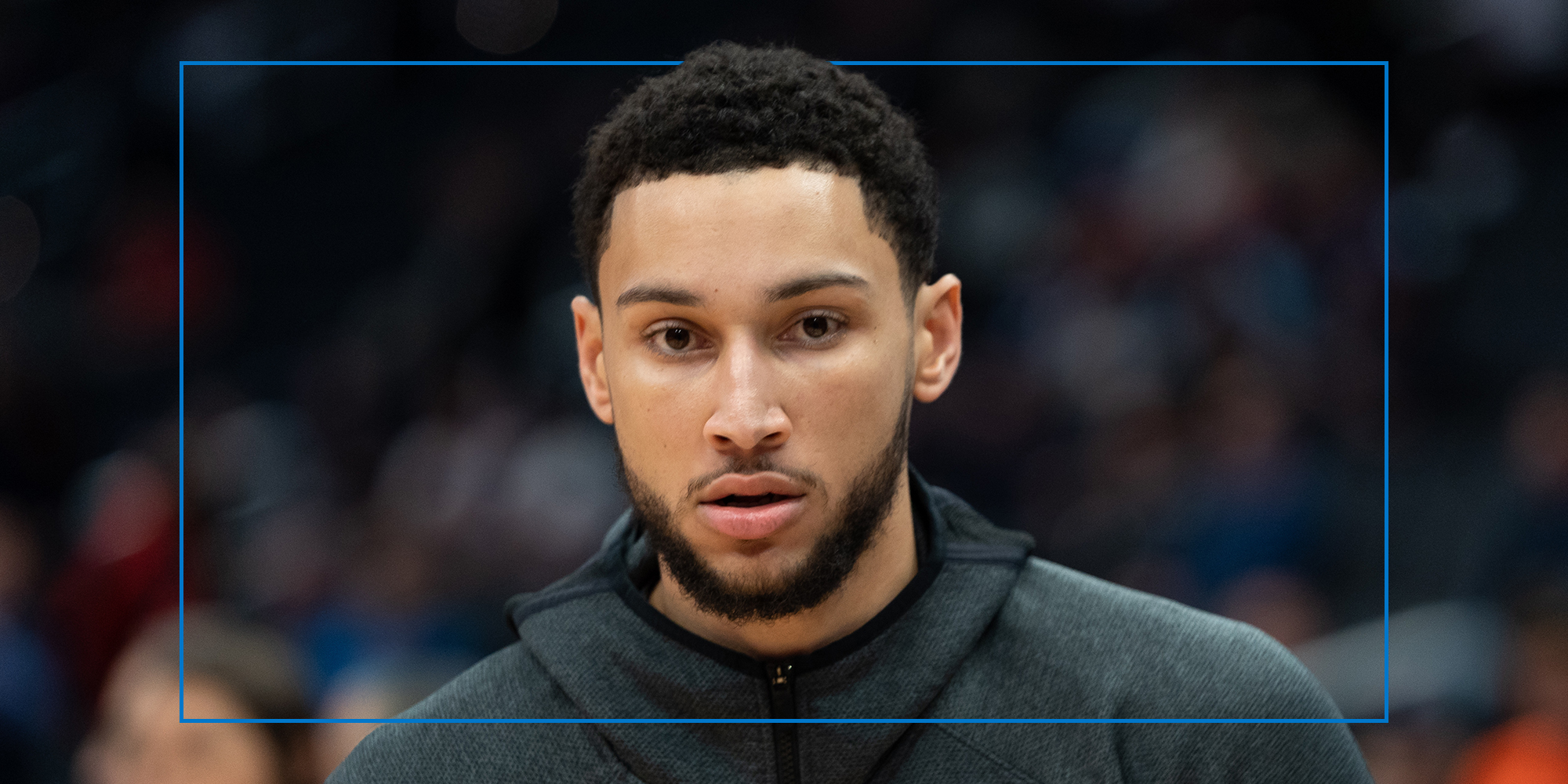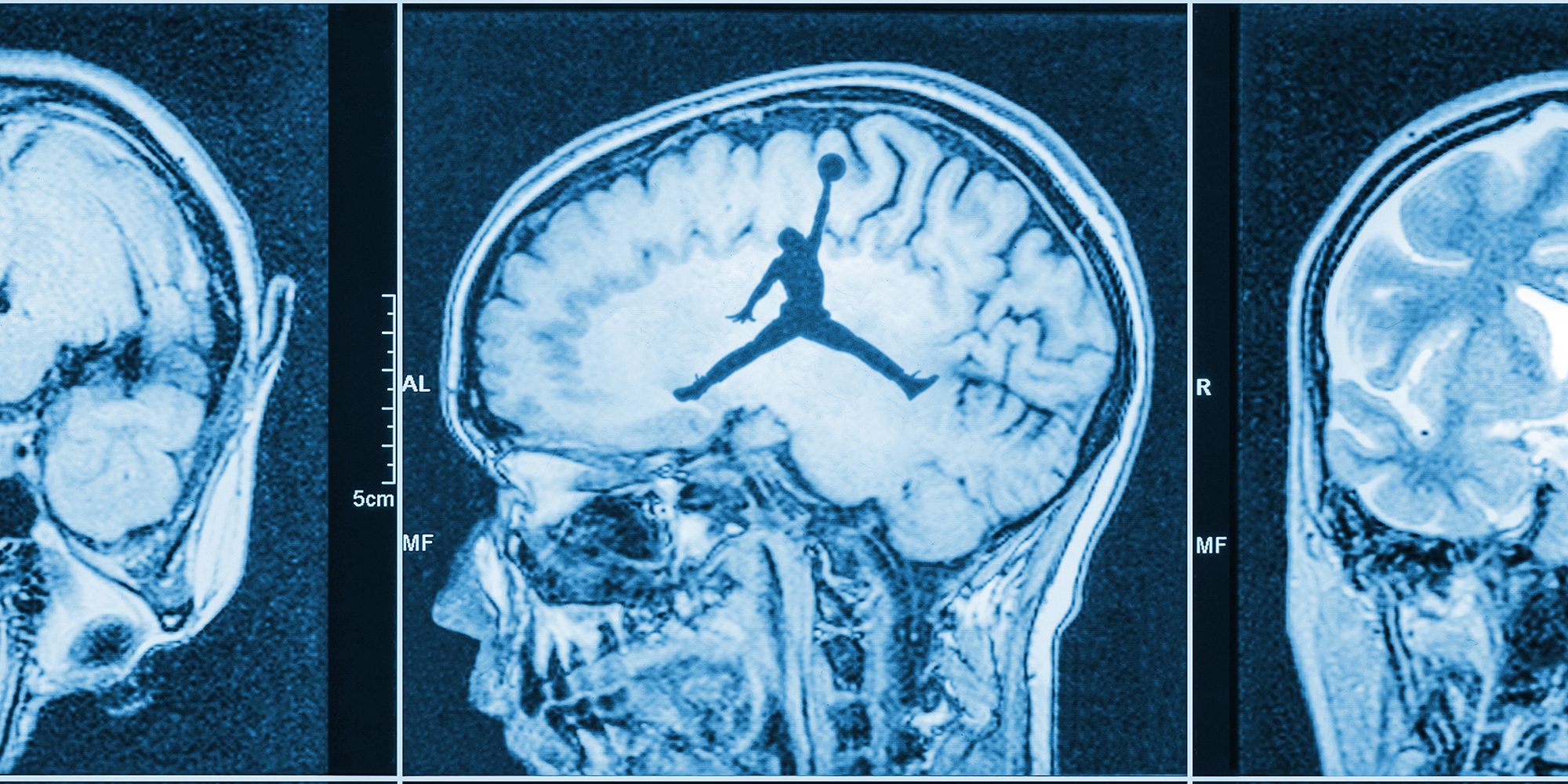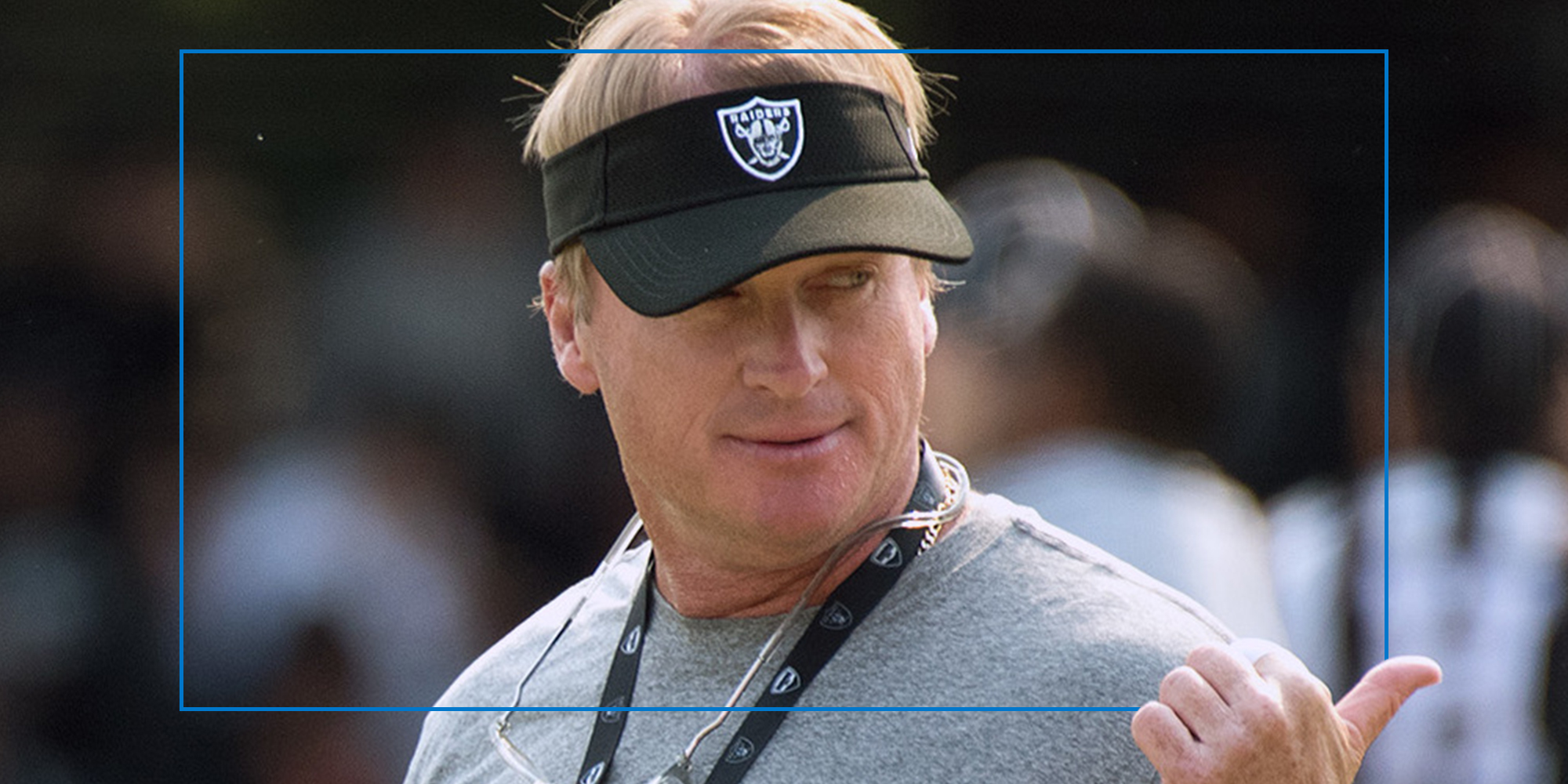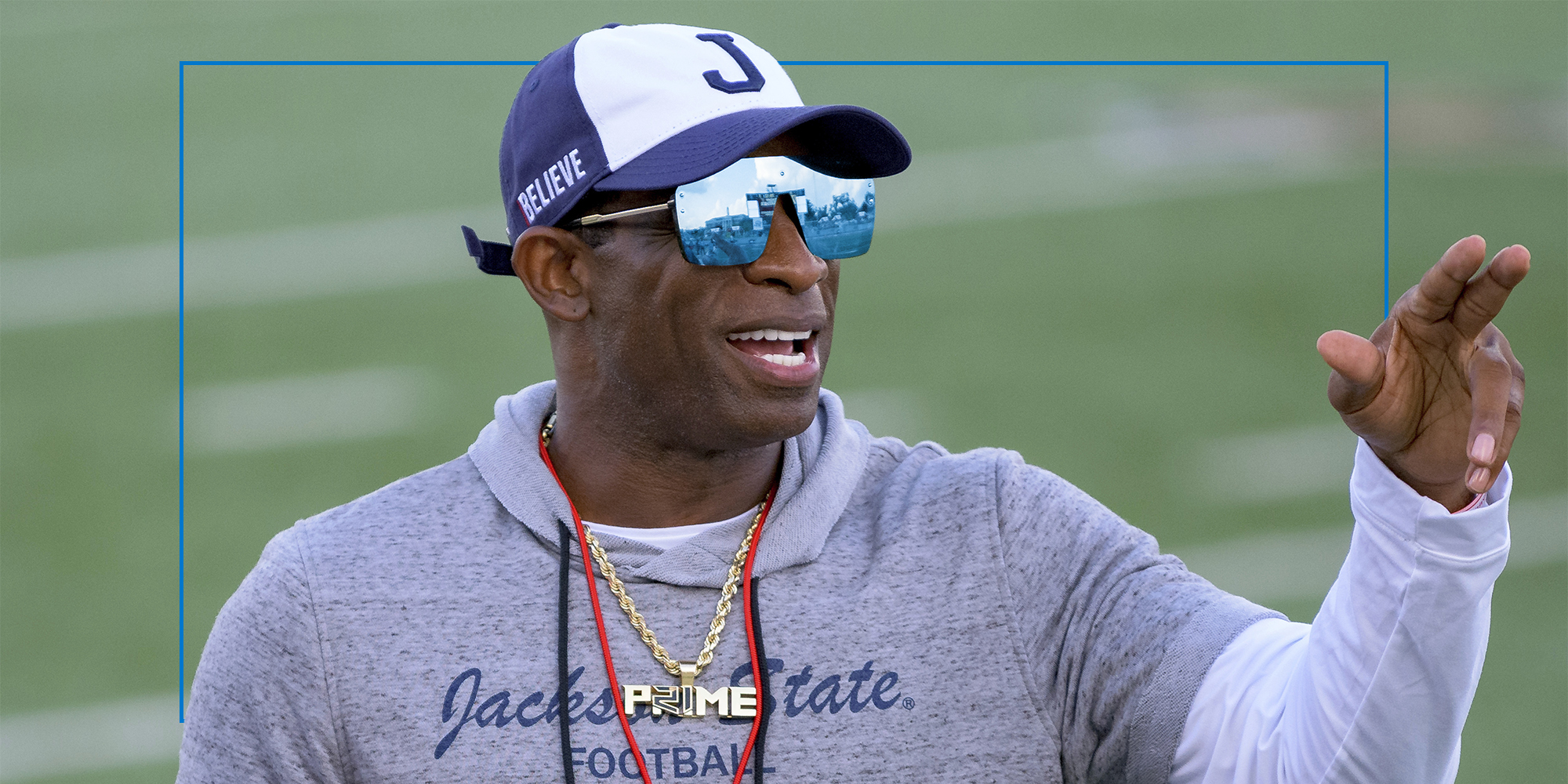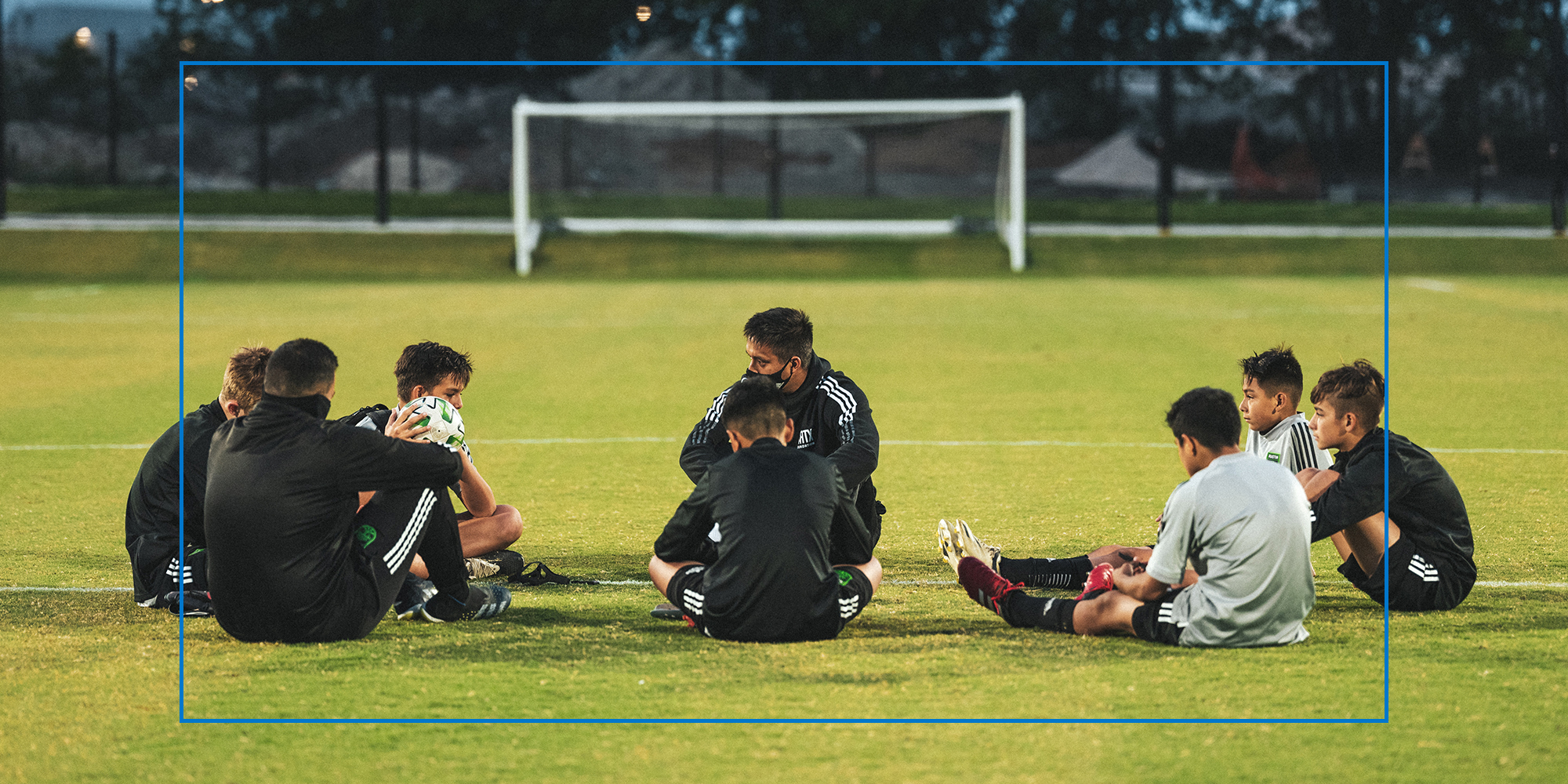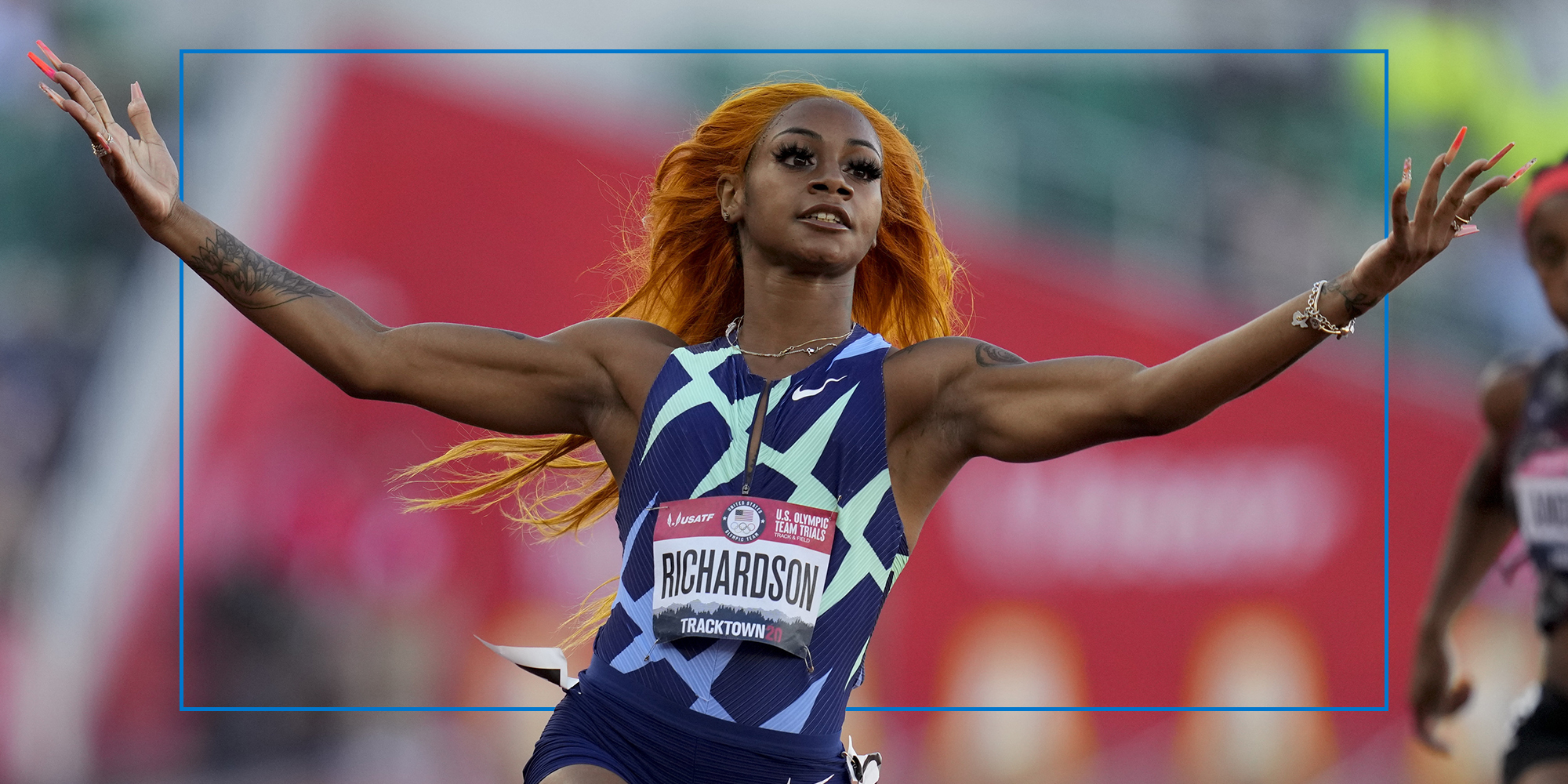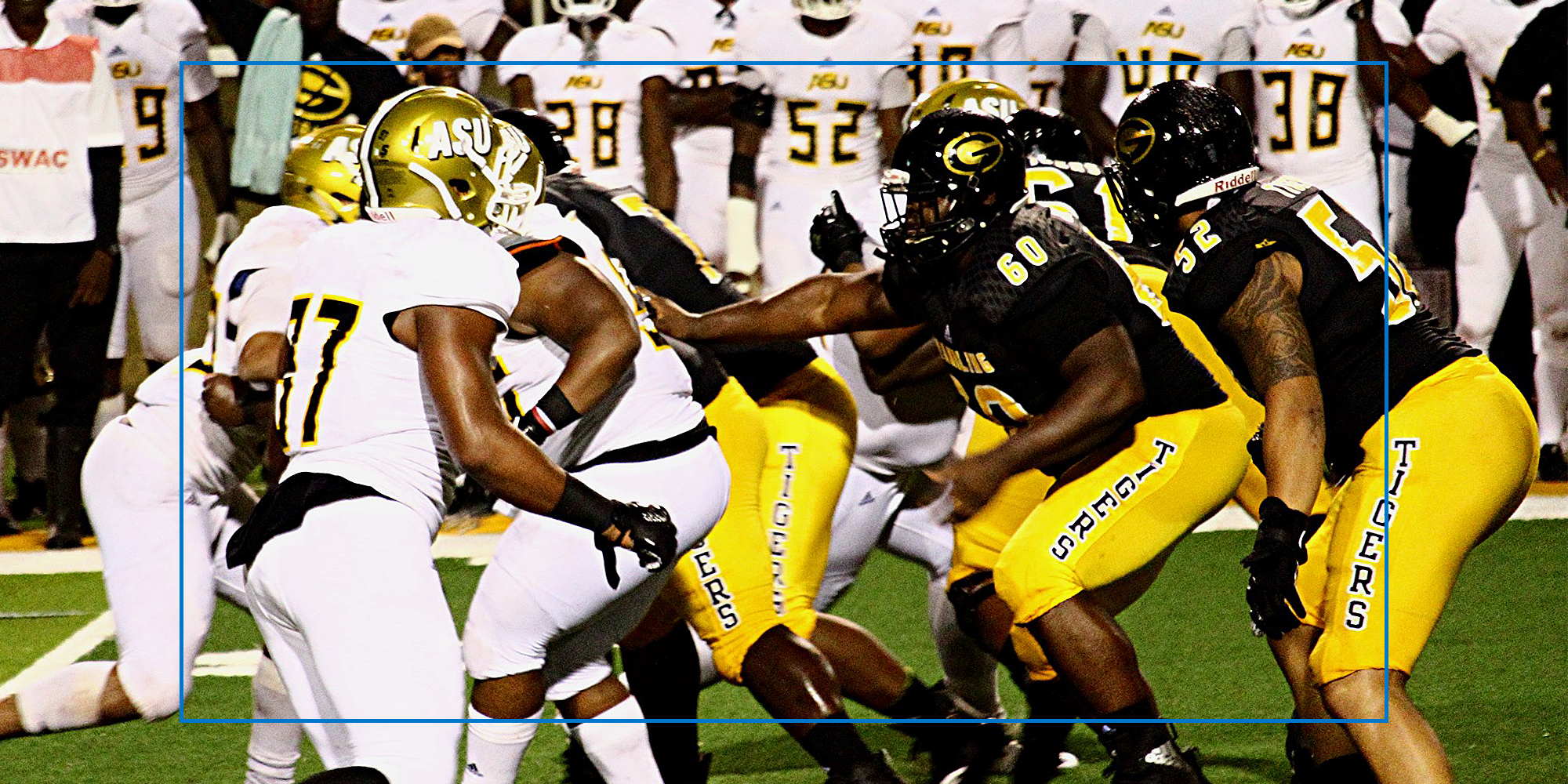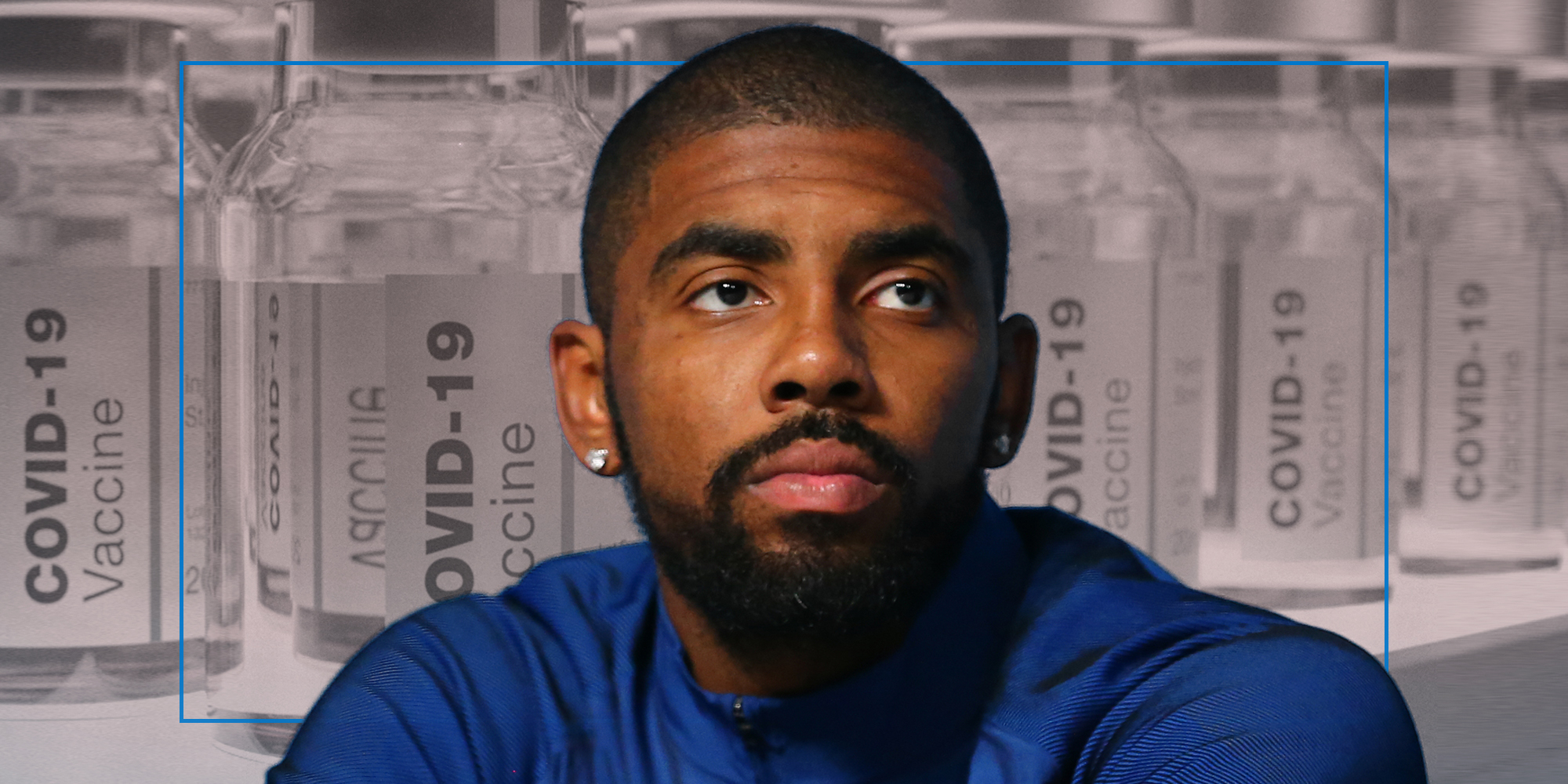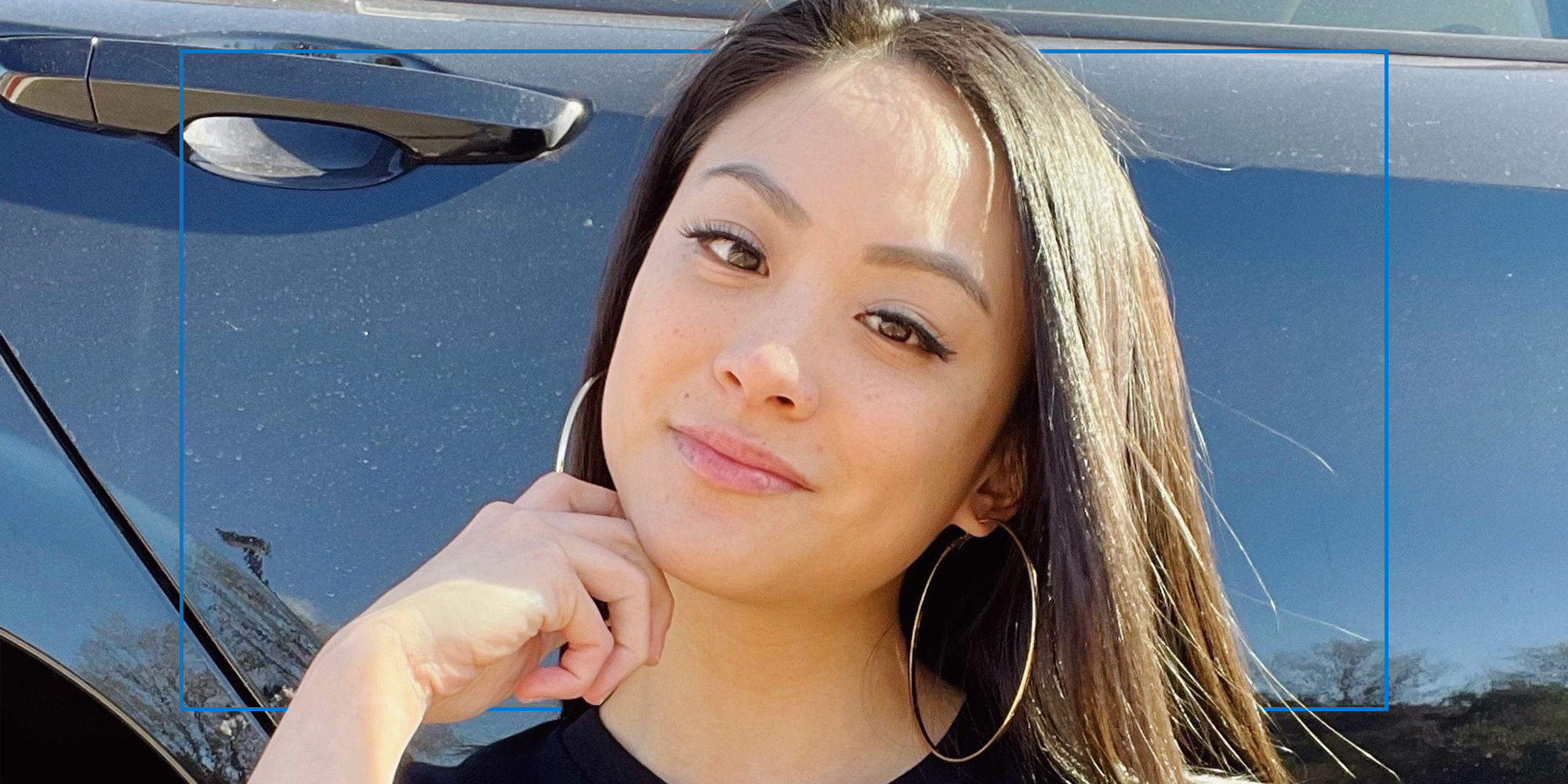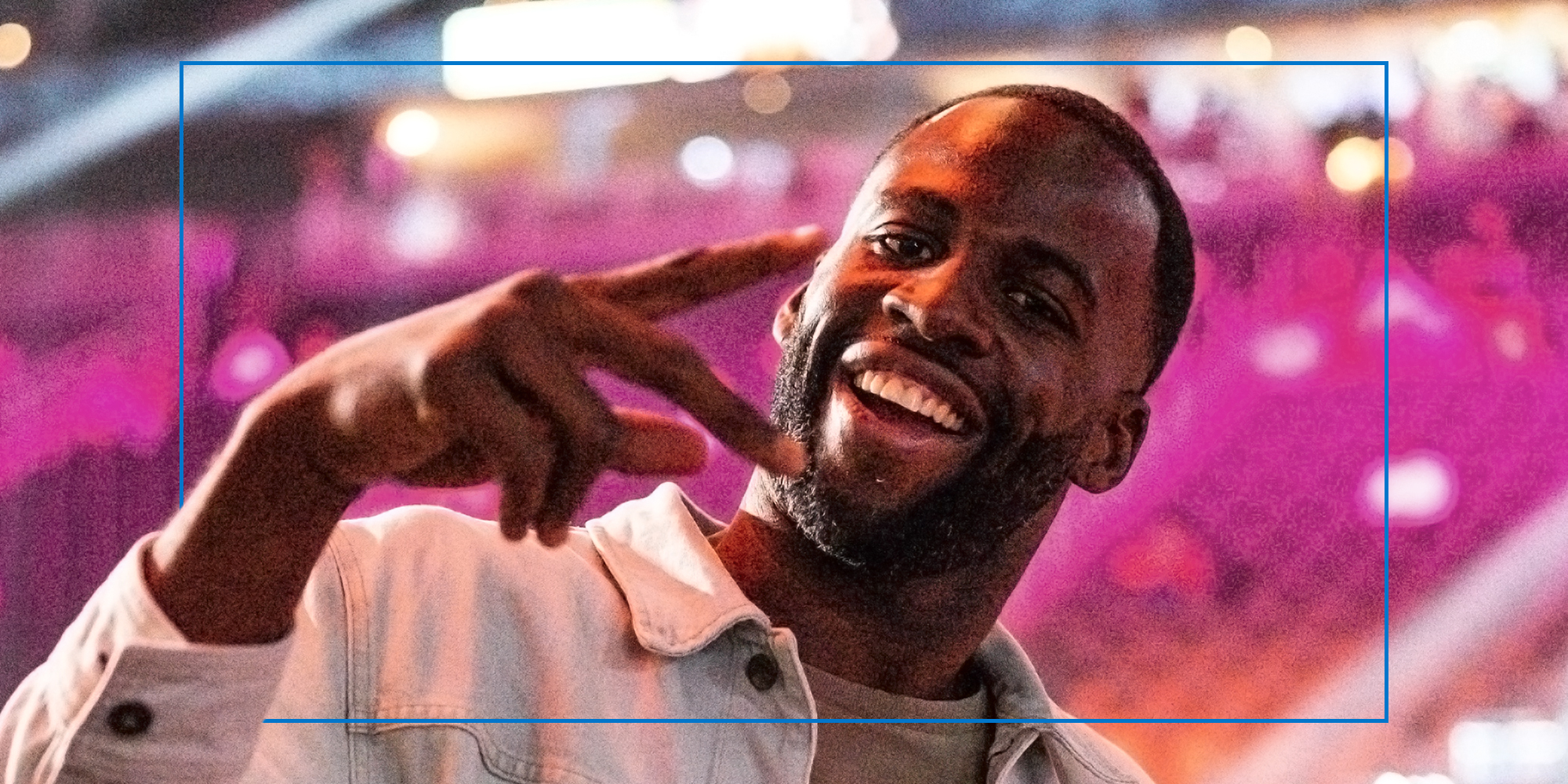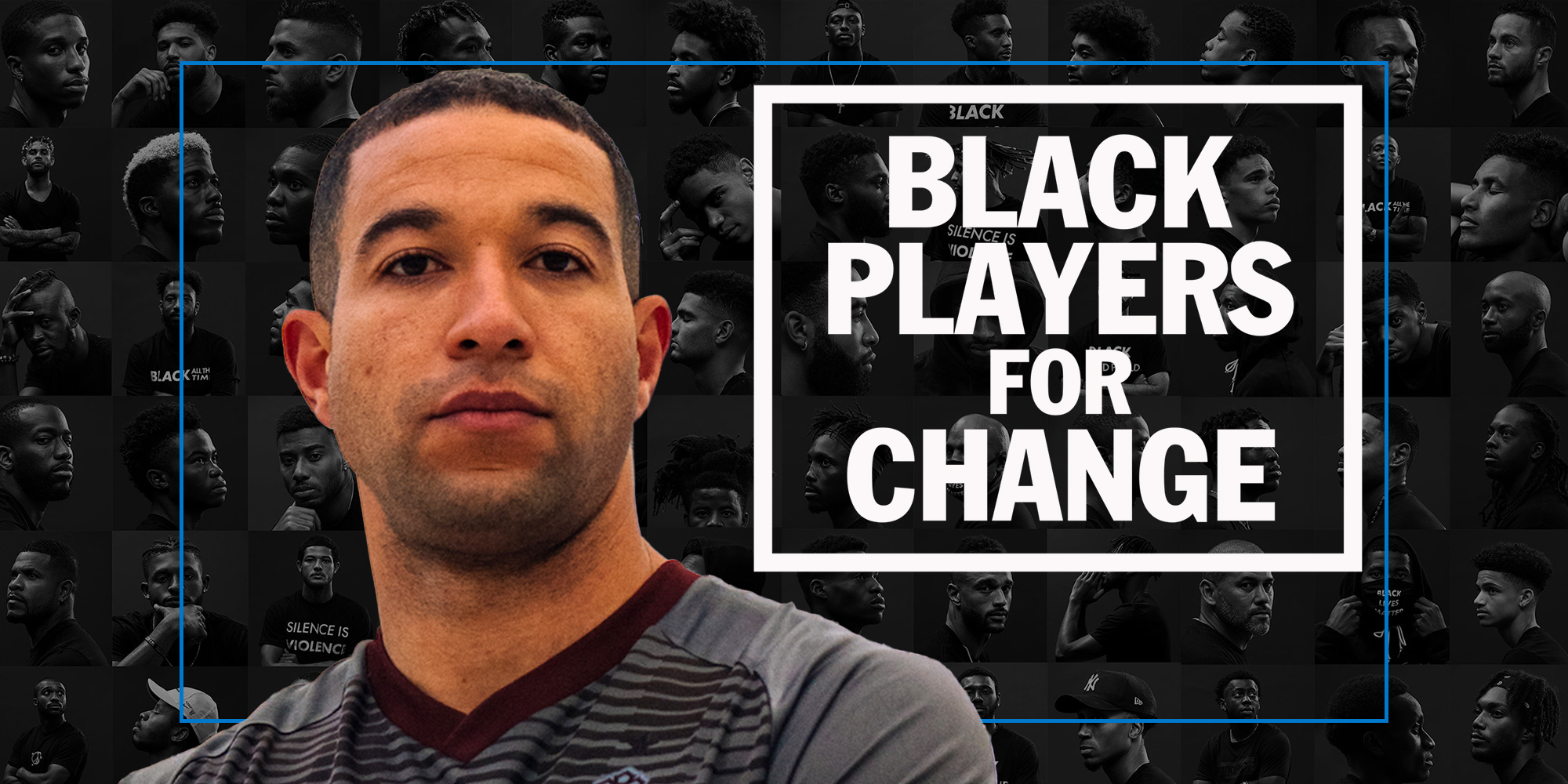The young students, clad in green shorts and a white top for a uniform, stand at opposite ends of a well-manicured soccer field. They take turns hopping — one hop after the other until they meet in the middle, where they play rock, paper, scissors.
They’re engaged in a warm-up and ice-breaker exercise, as part of a program launched earlier this year on Curaçao, a small island nation of just over 150,000 people, located in the Caribbean Sea about 40 miles from the coast of Venezuela.
Curacao is best known for baseball — it has the highest number of Major League players per capita — but it’s had recent breakthrough moments competing in the Concacaf region dominated by the U.S. and Mexico — and the students gathered here are embracing that sport.
They’ll move on from warmups to take their game to a makeshift field outside their school, playing on concrete, setting up goal posts made from recycled waste from the ocean.
It’s all part of a program called Future Goals that brings some light and hope — with the dual virtues of teaching kids and cleaning the oceans — in a year of definite soccer cynicism, now in full flower with the Qatar-hosted World Cup engendering criticism from fans watching the tournament with a great deal of internal conflict.
How the partnership works
Created, designed and cultivated by the Sandals Foundation — the philanthropic arm of Sandals Resorts — in conjunction with legendary Dutch soccer club AFC Ajax, Future Goals’ aim is an admirable one.
According to the Sandals Foundation website, Future Goals is “a movement to encourage the next generation to play and enjoy soccer in a sustainable way.” Initially, the partnership is in the process of outfitting four dozen elementary schools throughout the island nation with close to 100 Future Goals — made with plastics retrieved from the ocean — and more than 600 soccer balls provided by Adidas during the first phase of the program.
Sandals Foundation took to its Instagram account in May to announce the program via a pair of Instagram videos, also creating an online portal for donations, noting that a $1,400 donation will fund “one local school with an eight-week training program, two coaches and equipment for one year.”
Future Goals also integrates a training program with AFC Ajax coaches at the helm. According to the Amsterdam-based club’s website, “Ajax wants to see talent blossom, both inside and outside the field and club” as a core of its societal impact statement, and notes that “Ajax is namely for everyone, no matter what their origins, religion, gender, politics, or skin color.”
Coaches will mentor ‘Future Coaches’ recruited from Favela Street, an organization developing young people with experience playing street football into instructors.
The eight-week curriculum that Ajax and Favela Street have teamed up on will focus as much on technique as it does mindset. They hope to expand the program beyond Curaçao throughout the Caribbean.
“As a Caribbean-born company, we are dedicated to showcasing this region’s beauty with the world while investing in its future – from protecting its oceans and marine life to developing generations to come,” noted Heidi Clarke, executive director of the Sandals Foundation. “Together with AFC Ajax, we developed a unique opportunity to empower youth through a game they love — football — while working to preserve our oceans.”
Clarke said ghost nets and plastic waste lost at sea have been transformed into goals with nets for primary school children through the innovative work of Curaçao-based company Limpi Recycling.
“[The goals are] a brilliant approach to conserving our Caribbean sea while creating opportunities for kids through sports,” she added. “And that’s how the Future Goals initiative was born, expanding our footprint onto an entirely new Caribbean island for Sandals with the opportunity to leave a lasting impact throughout the region.”
Clarke said that beyond its environmental impact on the Caribbean and the oceans, the Future Goals program is complemented by Future Coaches, who teach the youth soccer techniques and serve as role models for their local communities and peers, all while using the sport as a means to encourage sportsmanship, team learning and more.
Teaching more than soccer
“Children walk away from this program with life skills, a sense of camaraderie, awareness about the role they can play in protecting our natural resources, and technical skills to keep them engaged in a sport beloved by our Caribbean locals and around the world,” she asserted, with some youth players recruited as mentors to teach younger children the game as well as life skills.
Chrishantely Granviel, 19, said she signed up to be a youth coach because she likes to work with kids. Granviel spoke in her native Papiamentu, a Portuguese-based creole language, while visiting the Sandals Resort in Curaçao with other coaches during a training session.
“It’s awesome to give back to the community,” she said through an interpreter, adding that she wants to help children stay away from bad influences.
Quinein Dorothea, 20, is a junior trainer with Favela Street in Curaçao and decided to take part in Future Goals.
He said he loves to work with children and wants to learn more about soccer through AFC Ajax, observing through an interpreter, “Because they are the experts when it comes to football.”
Favela Street has garnered attention for its work — including from FIFA, who highlighted female instructors from the organization in a documentary streaming on the FIFA+ website — perhaps an attempt to generate some positive publicity in a year where it desperately could use it.
Dorothea said his grandmother used to tell him that he wouldn’t like working with kids, but through Favela Street, he learned to work with them and enjoys it and likes being a role model for them.
Dorothea, currently working as a cook, wants to become a full-time coach and hopes to do that until he reaches retirement age. He also looks to learn more about recycling and ocean conservation, especially regarding its impact on his current livelihood.
“Curaçao is a tourist island,” he noted, “so it’s important to keep the oceans clean for the tourists and also to keep the oceans clean for the fish, because it’s important to eat healthy fish.”
Transforming waste
At a nondescript facility on Curaçao, Mitchell Lammering and Debrah Nijdam are making beautiful creations from ocean waste.
Lammering and Nijdam, along with two other employees, are the team behind Limpi Recycling, which makes unique creations from plastic waste found in the ocean off Curacao.
Lammering and Nijdam met each other while studying Industrial product design in Holland. After graduating, they decided to move to Debrah’s home island Curacao and started Limpi, which means clean in Papiamentu.
“In our studies, we learned about the plastics, production times, but also the dangers of plastics. So that’s where we really got to know what plastics actually are doing to our world,” Nidjam said.
The couple visited Curaçao in 2015, and she said it was a “real eye-opener” to see all the plastic washing ashore on the north side of the island.
“And we thought, we need to show more people what is going on,” she said, adding that they decided to start a project to create awareness about the plastic but also where they were creative and made things with their hands. “So that’s when we decided to create our own machines and make new products from plastic waste and we’ll see where it takes us. It quickly turned into a business because we got a lot of responses and orders and people wanted to make this and that.”
The process to make a piece out of plastic is fairly simple, but it requires specialized machines. To start the process, the team goes to the beaches and picks up plastic waste, including plastic bottle caps and washing detergent containers. The plastic is sorted by color, cleaned and then shredded.
“Then those pieces go back into the machine where the machine pushes the plastic through a barrel that heats up and then you get like a chewing gum kind of substance,” Lammering said. And that chewing gum-type substance gets injected into molds.
They make everything from bracelets to keychains to coasters for beverages and lampshades. They maintain that soccer goals, however, was their most ambitious project to date, working with the Coast Guard to gather netting used in illegal fishing.
“It’s the plastic that was washing ashore that really opened our eyes on the North Coast,” he said. “The North Coast is a rough sea. We don’t have standard beaches or you have to go down with a jeep or something like that. It’s not something where normal people come. So that’s also why there’s a lot of trash over there. It’s just full of plastic everywhere, plastic and trash and stuff.”
Nijdam added that the plastic isn’t actually from Curaçao, but from surrounding locales.
“It’s toxic for the fish because chemicals stay on the plastic, the fish eat the plastic, so the chemicals go into their body,” she said. “Indirectly it’s hurting us. But not a lot of people know about that. So it’s an impact that’s not really being seen.”
For Sandals and its foundation, working with Limpi Recycling and the coaches and youth on Curacao was a no-brainer, Clarke said.
“We knew that Curaçao was the perfect place to hit the ground running,” she said. “Sandals Resorts was gearing up to debut its first-ever resort on the island and with the existing relationship between AFC Ajax and Curaçao, starting our Future Goals journey there was the perfect match for this groundbreaking partnership. Our existing relationship with Limpi Recycling brought the vision from prototype to reality. Curaçao is just our starting point, and we are eager to expand Future Goals into a Carribean-wide program.”
This story is part of the Pixel Pitch series, exploring the spaces where soccer, the internet and identity intersect. Pixel Pitch is a joint project partnering The Daily Dot with The Striker, a soccer-centric online publication “where every day is a soccer news day.”
See more stories from Presser – examining the intersection of race and sports online.

